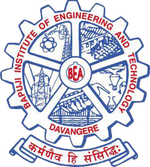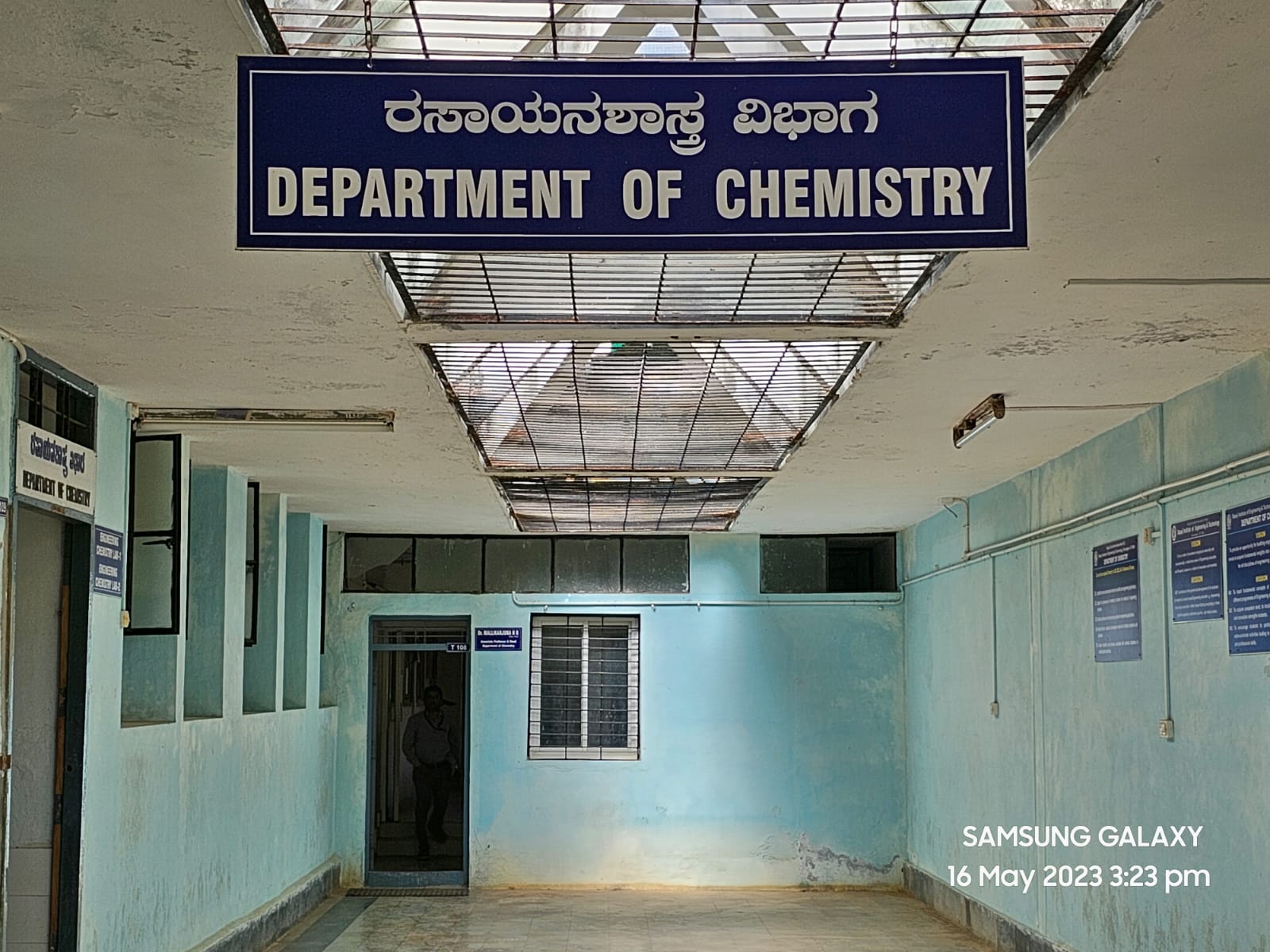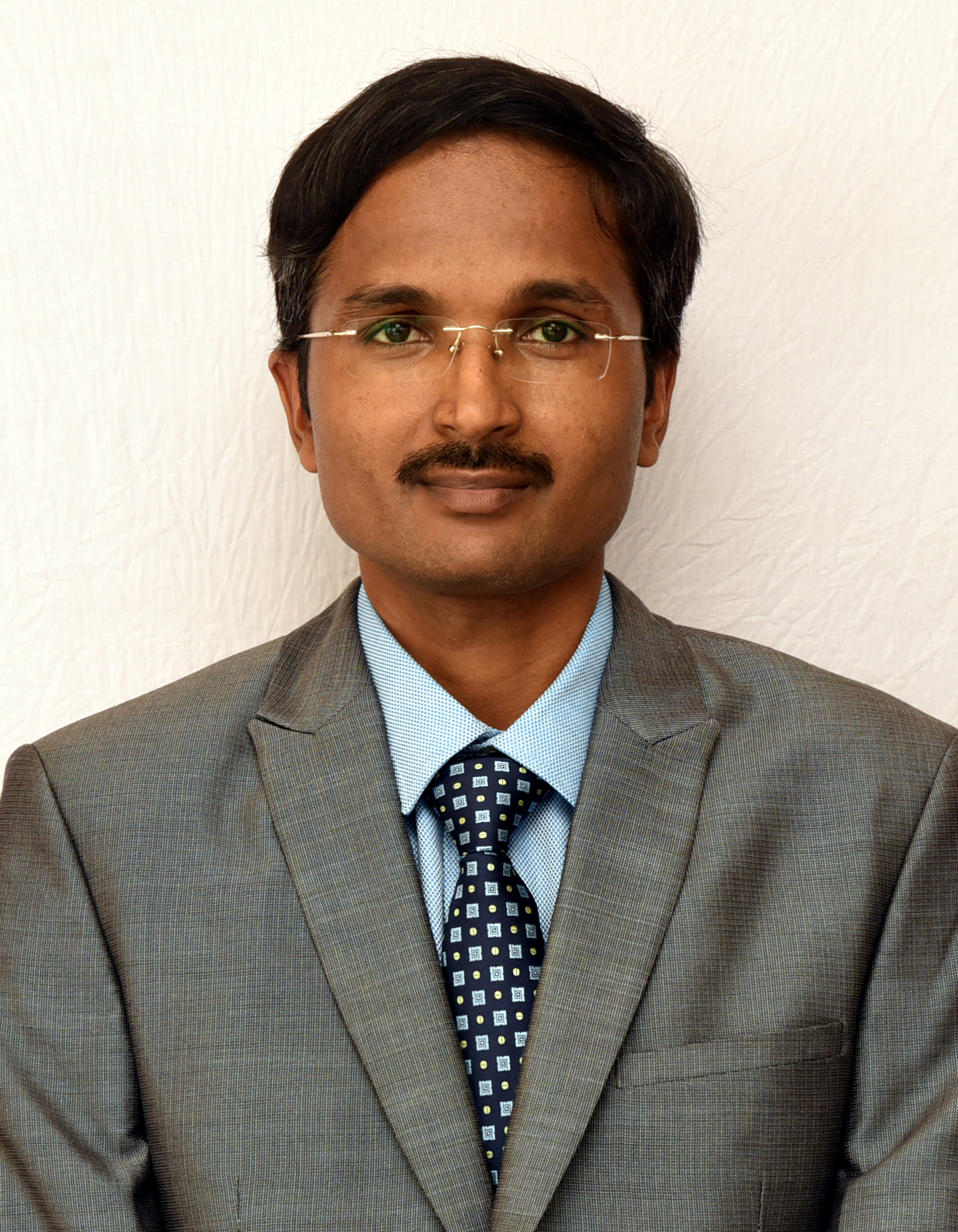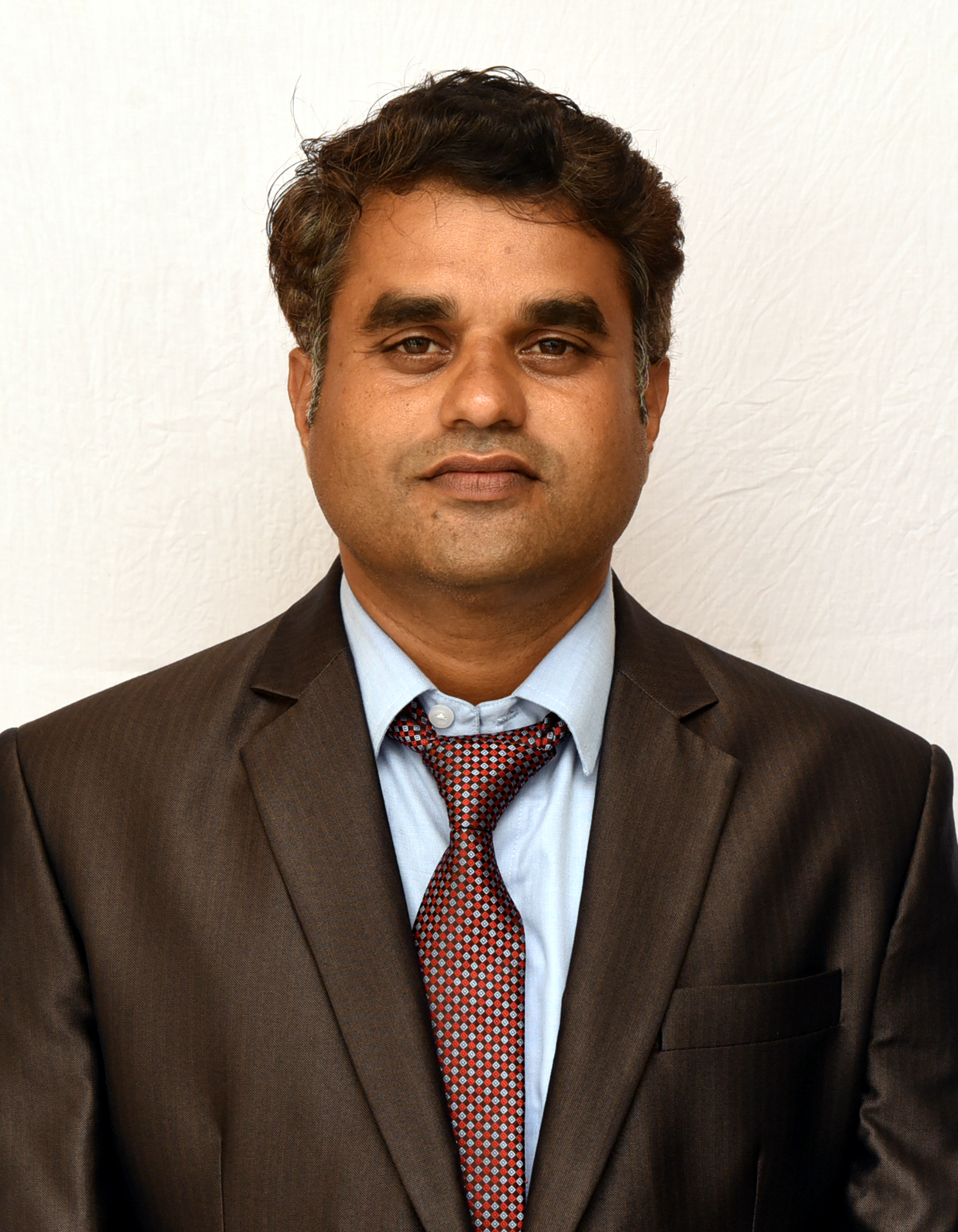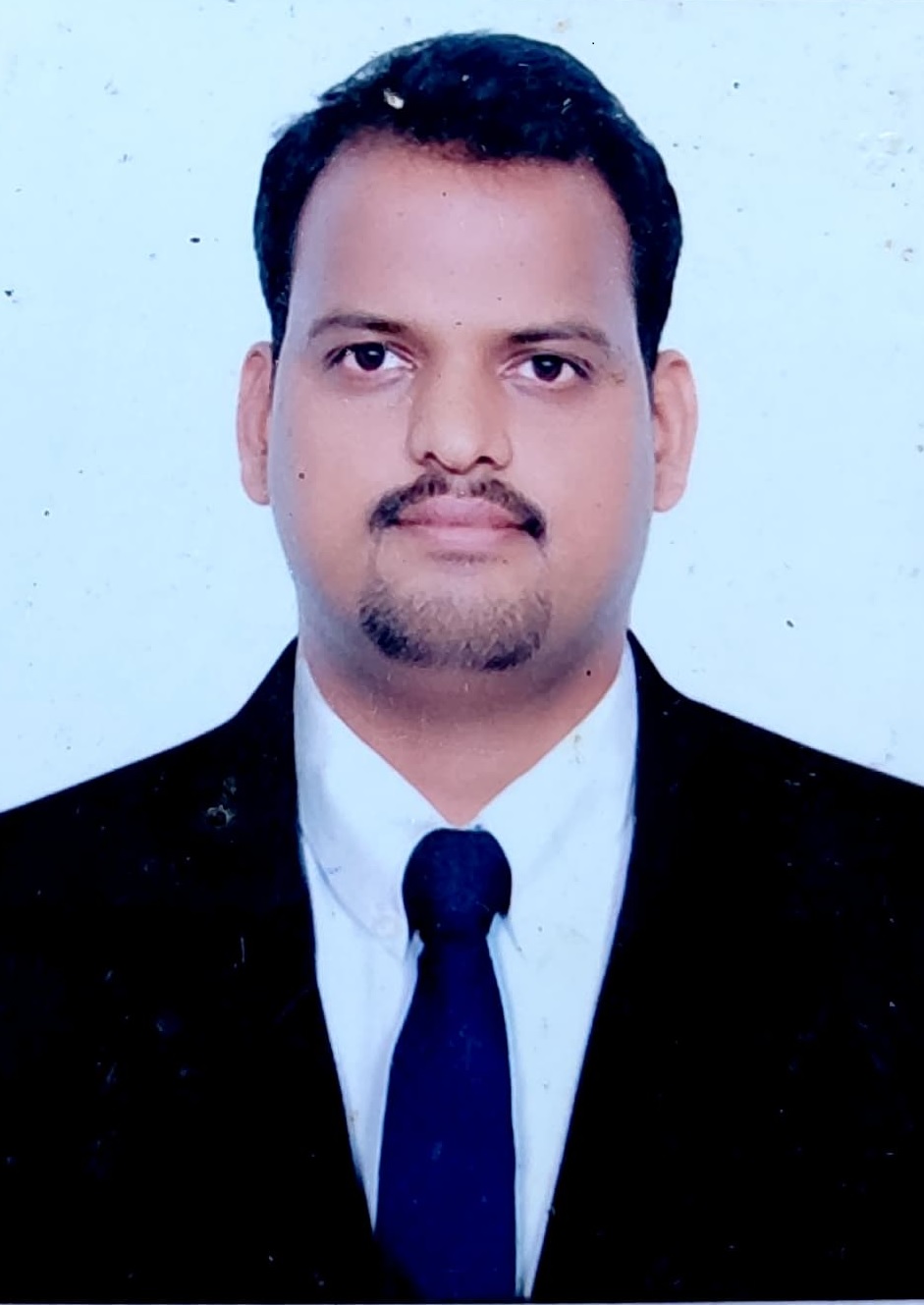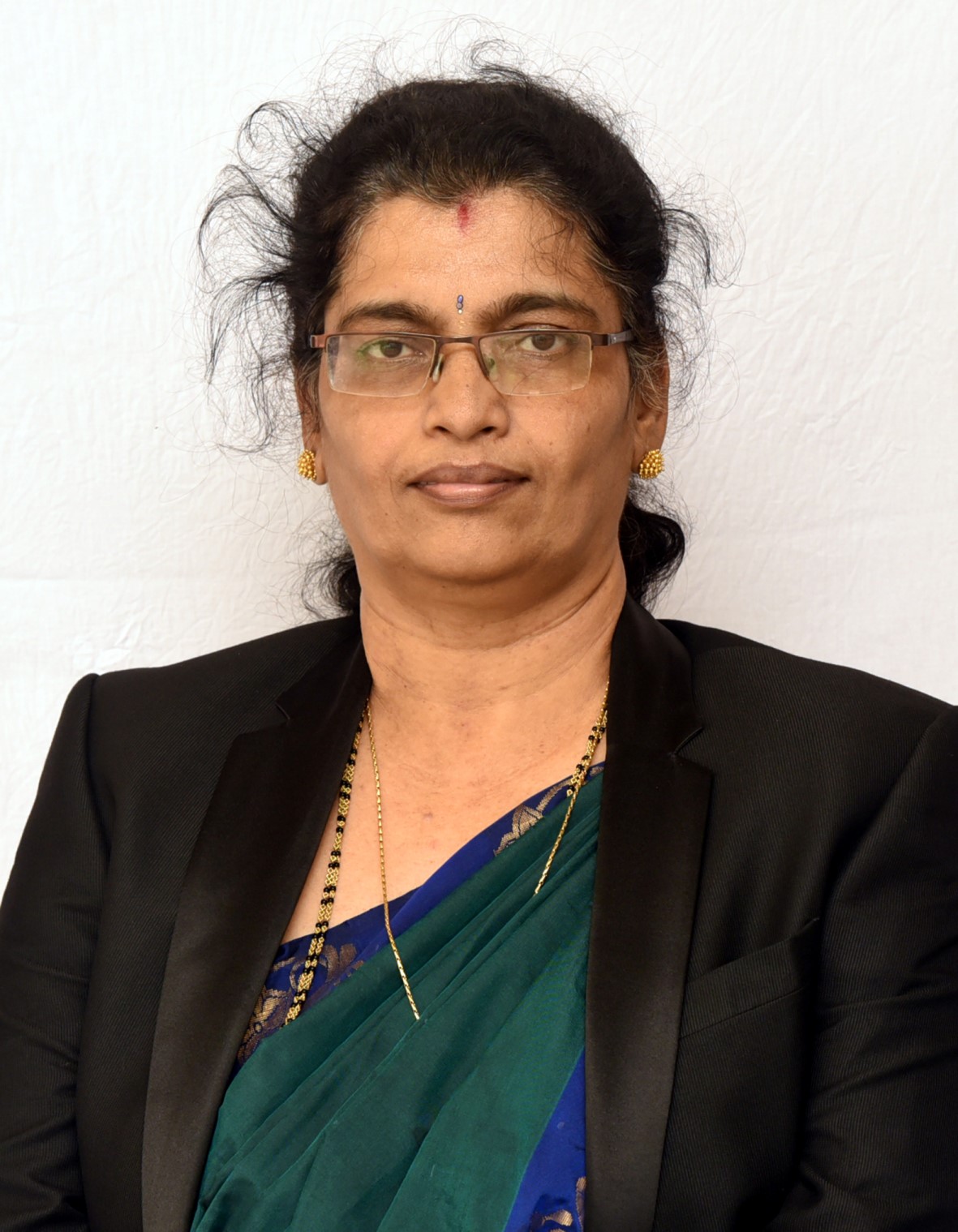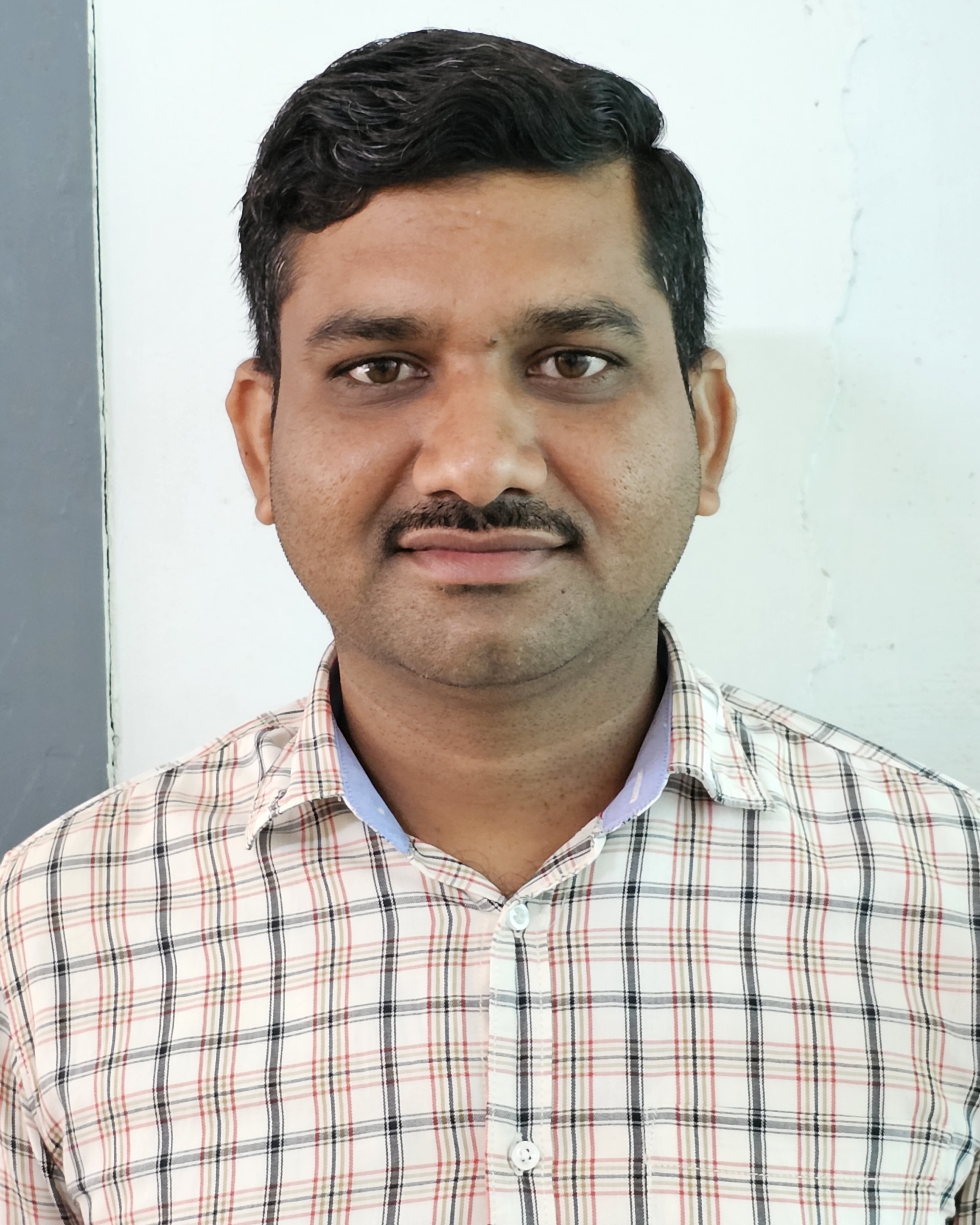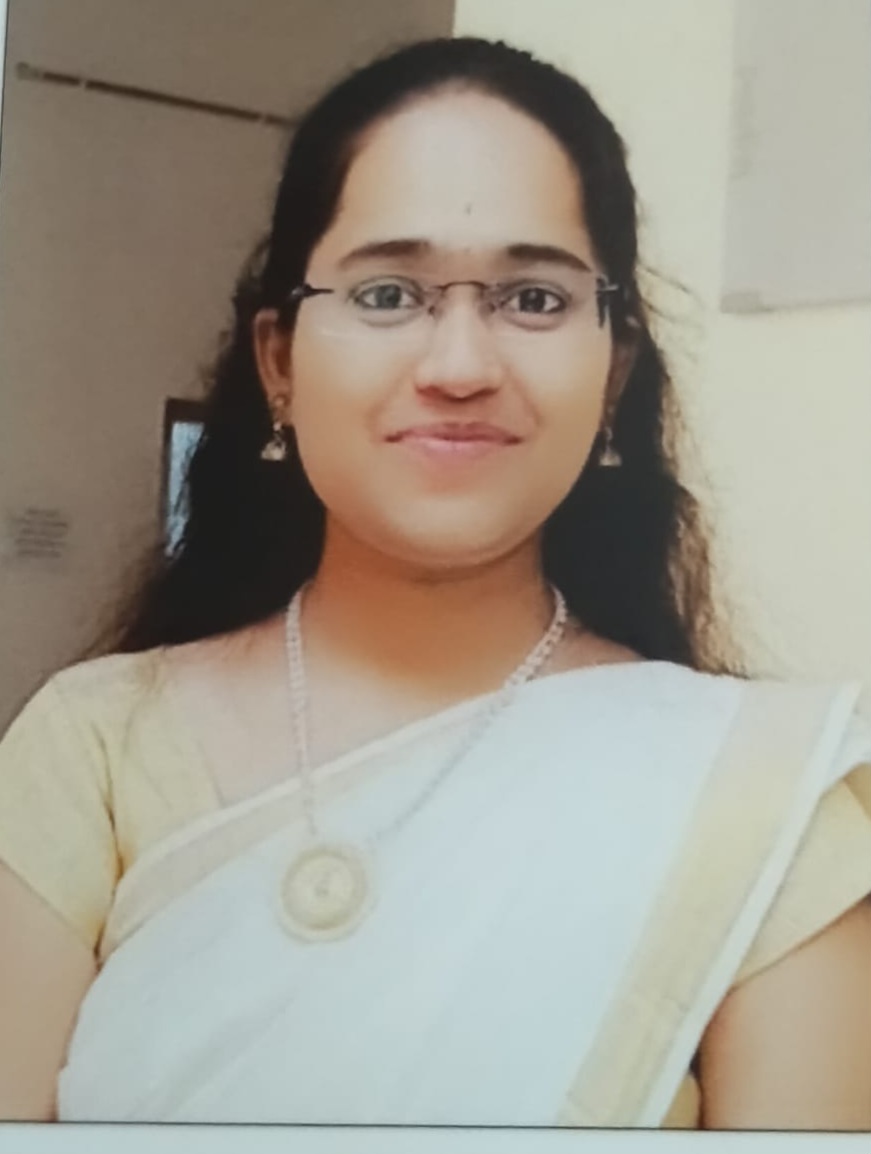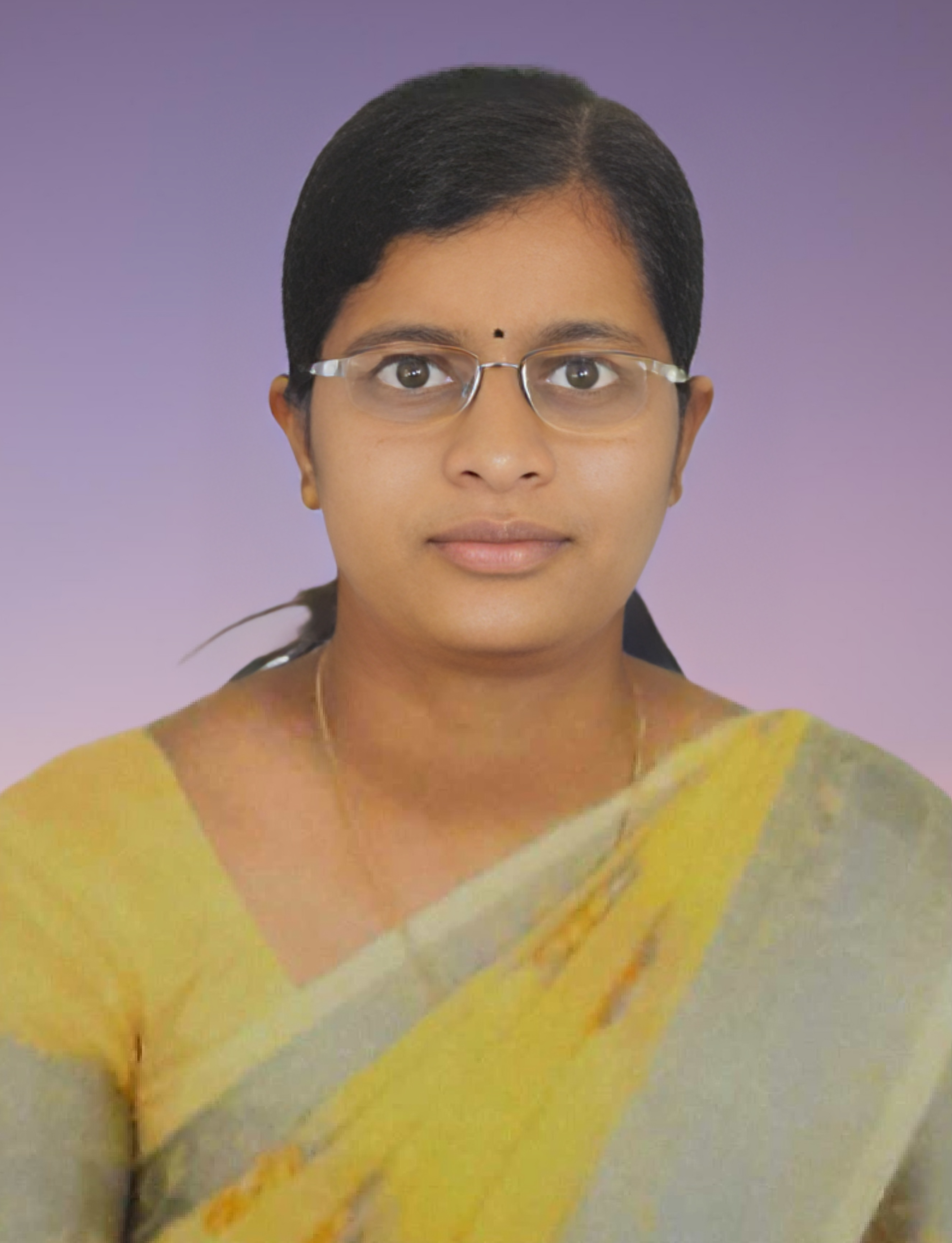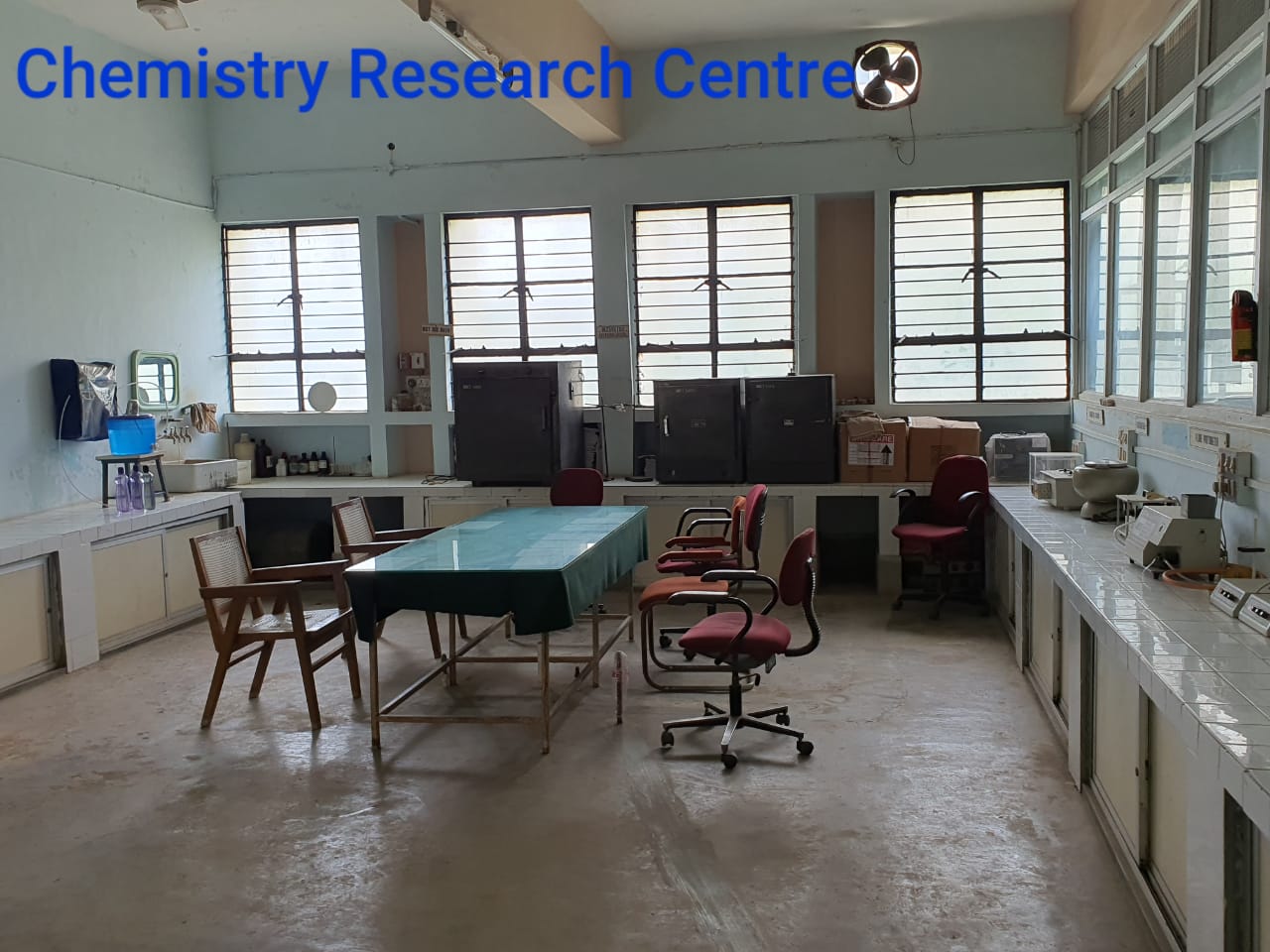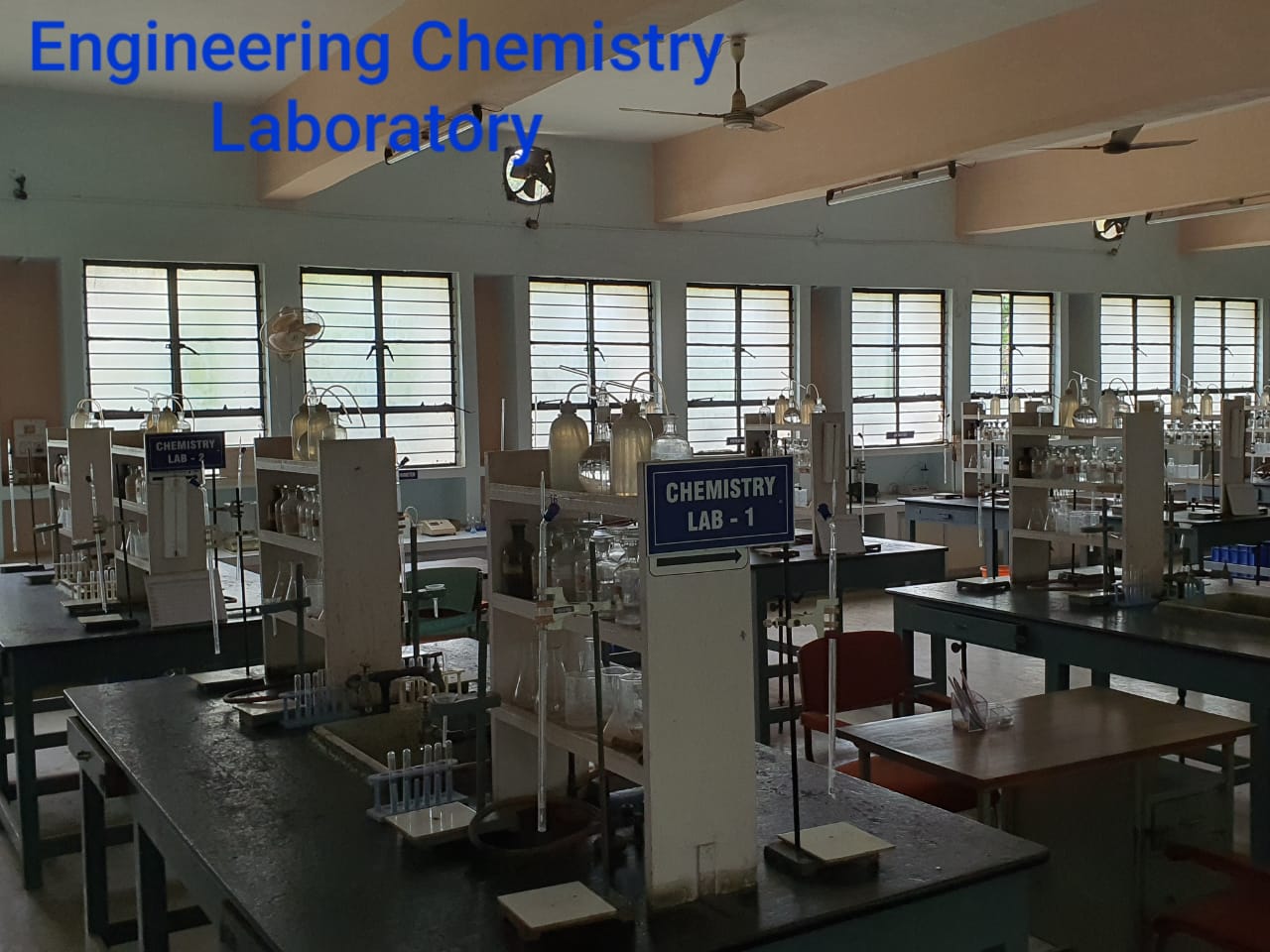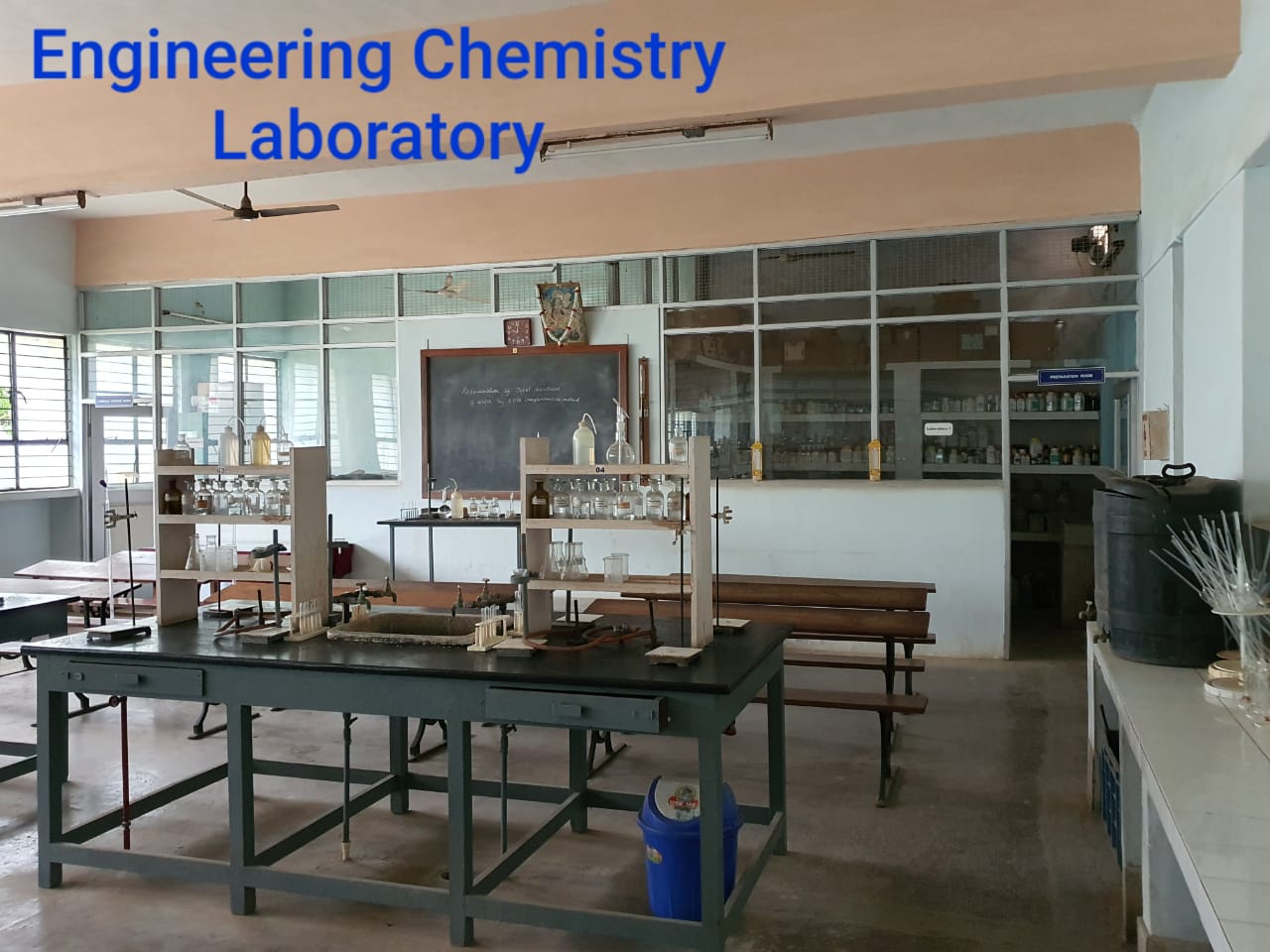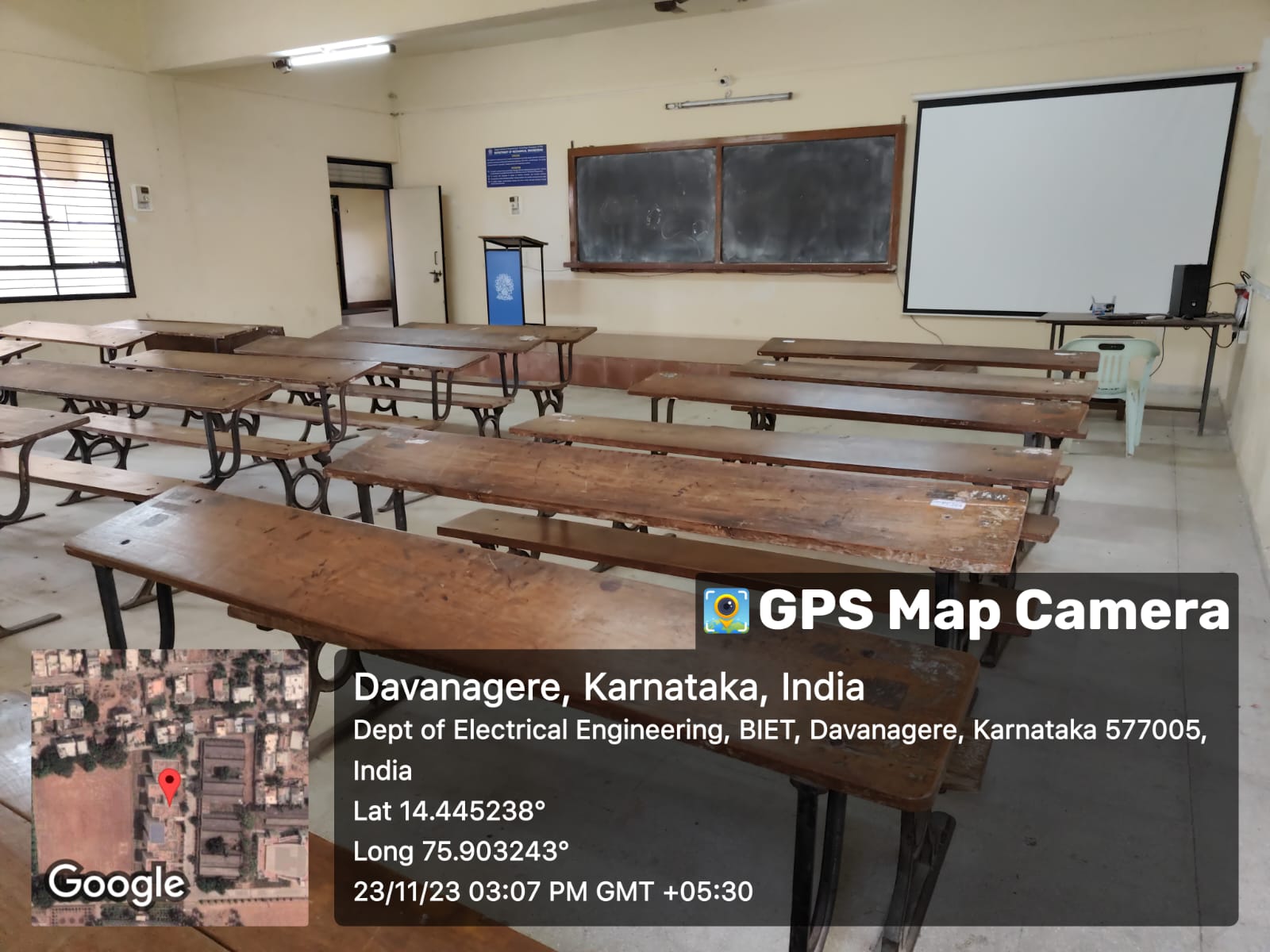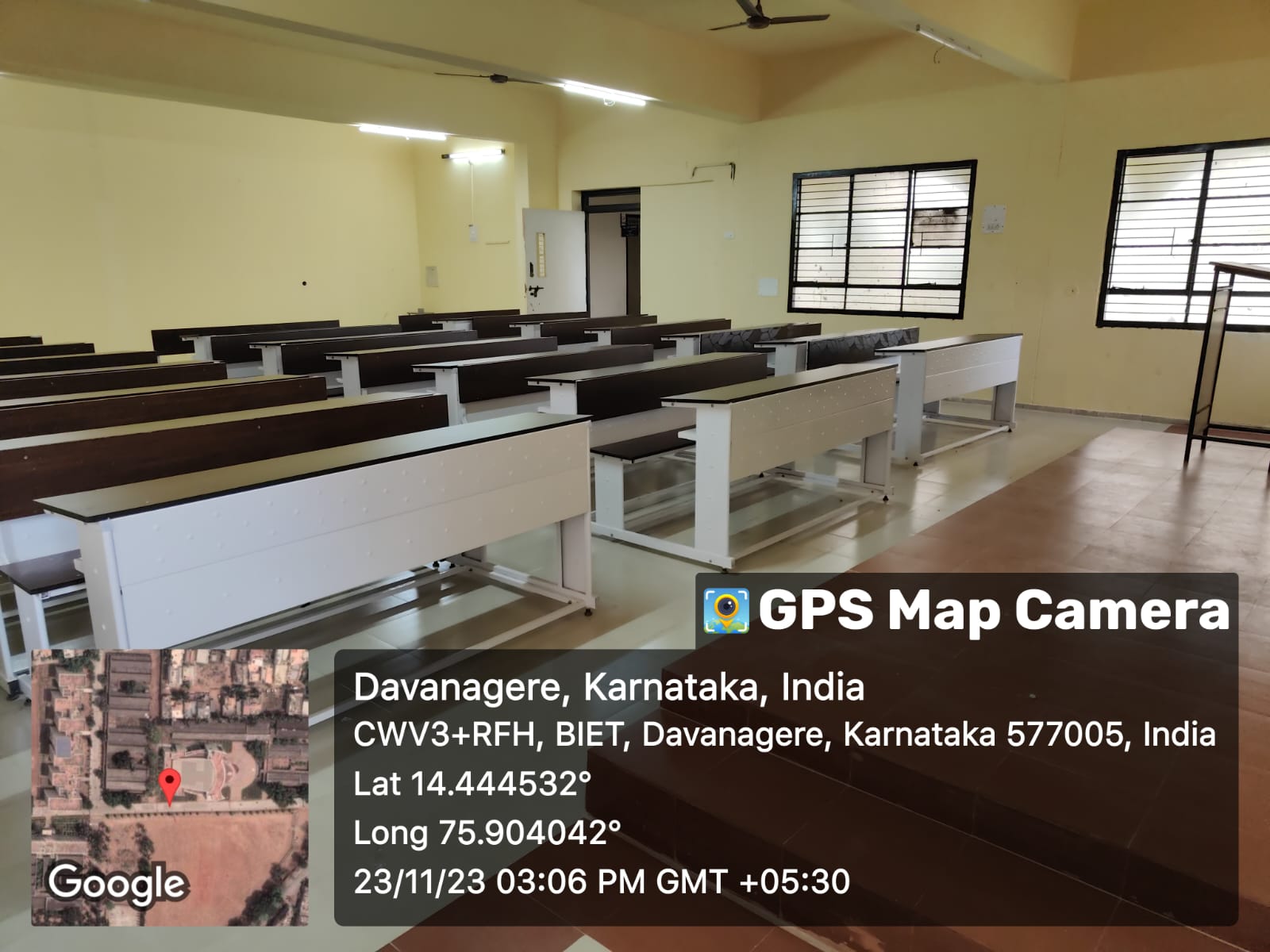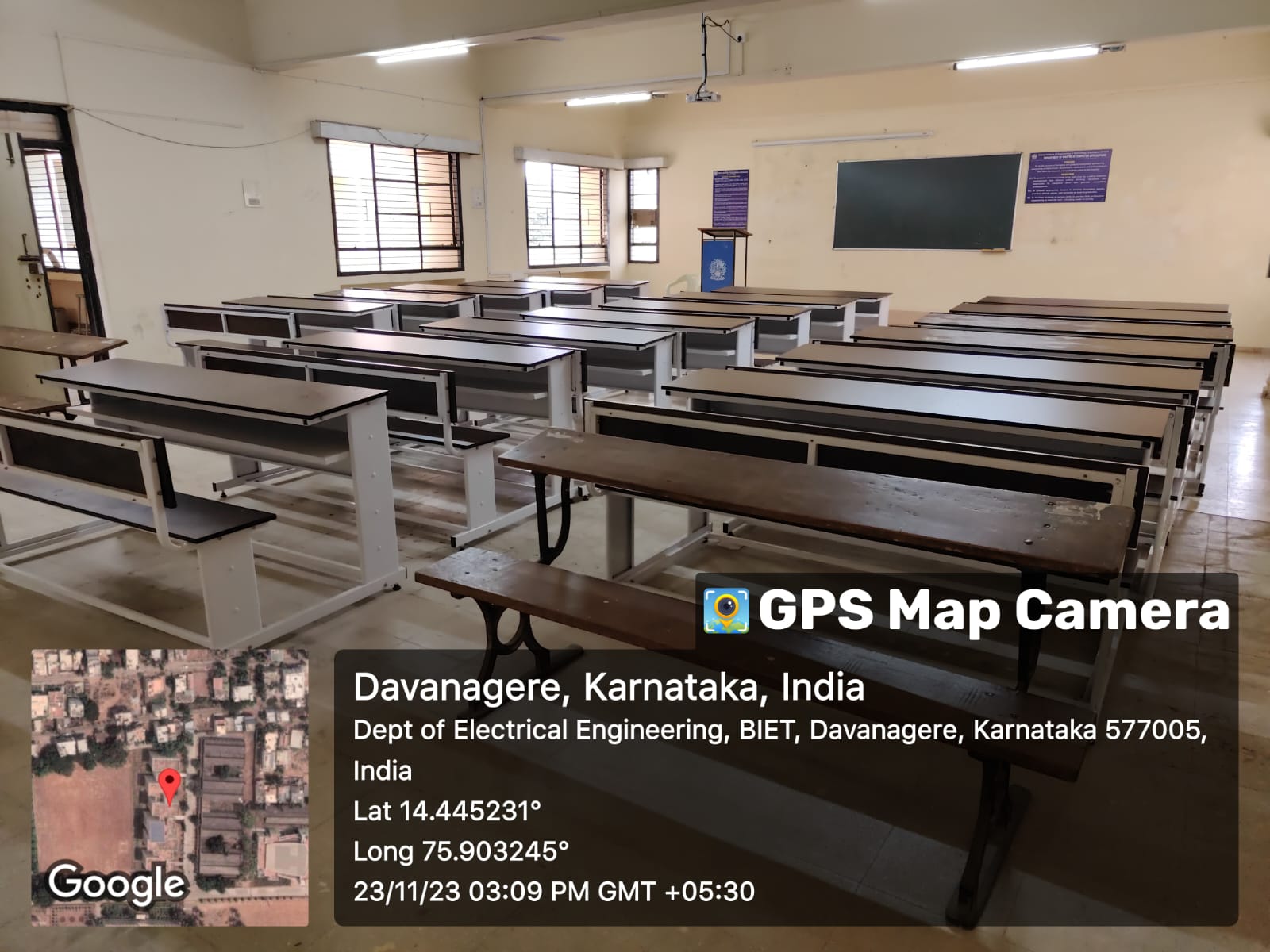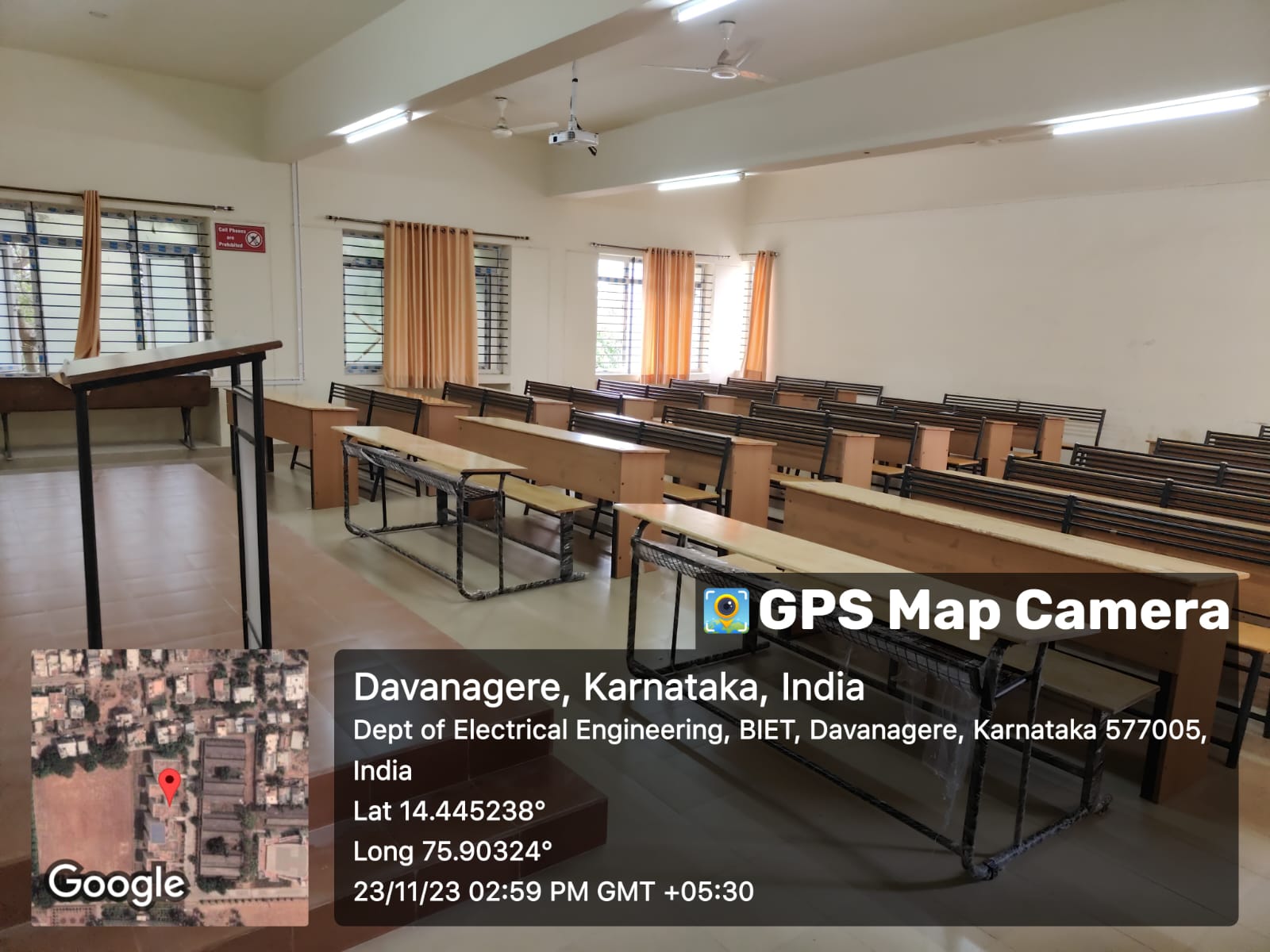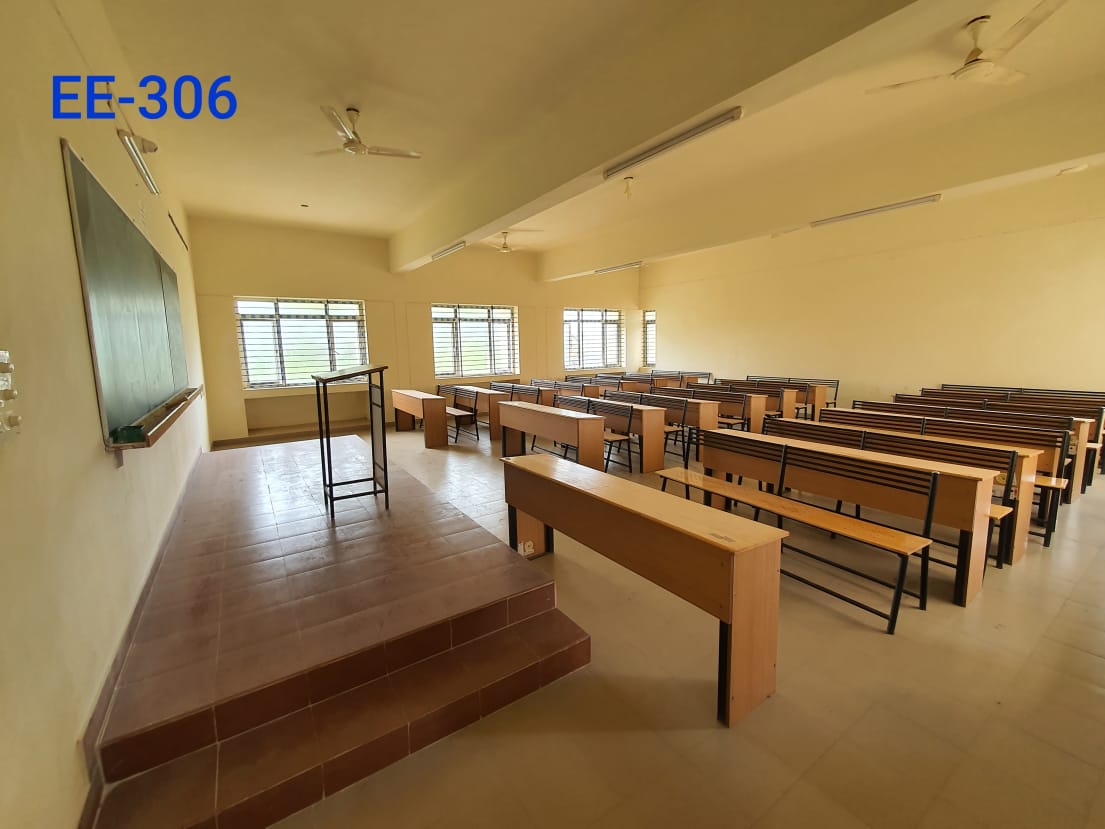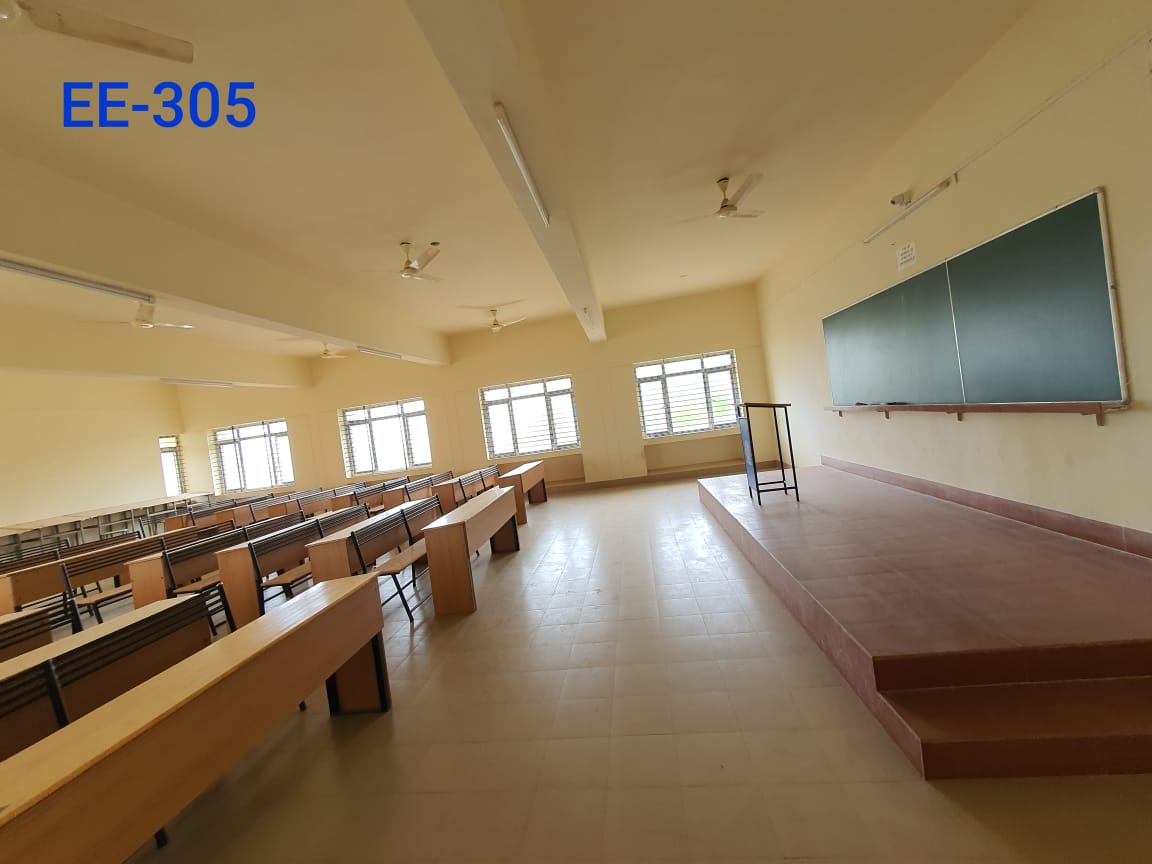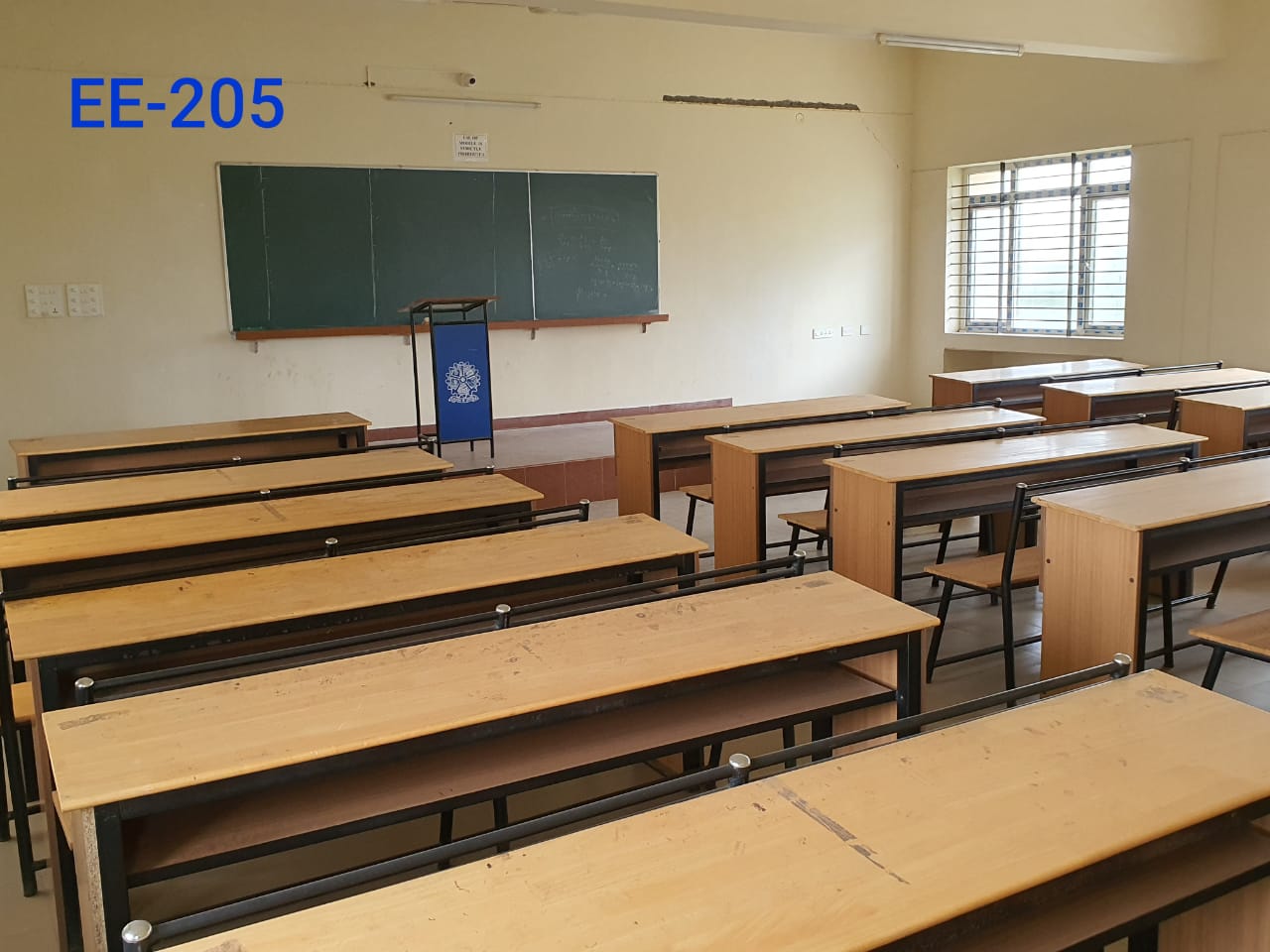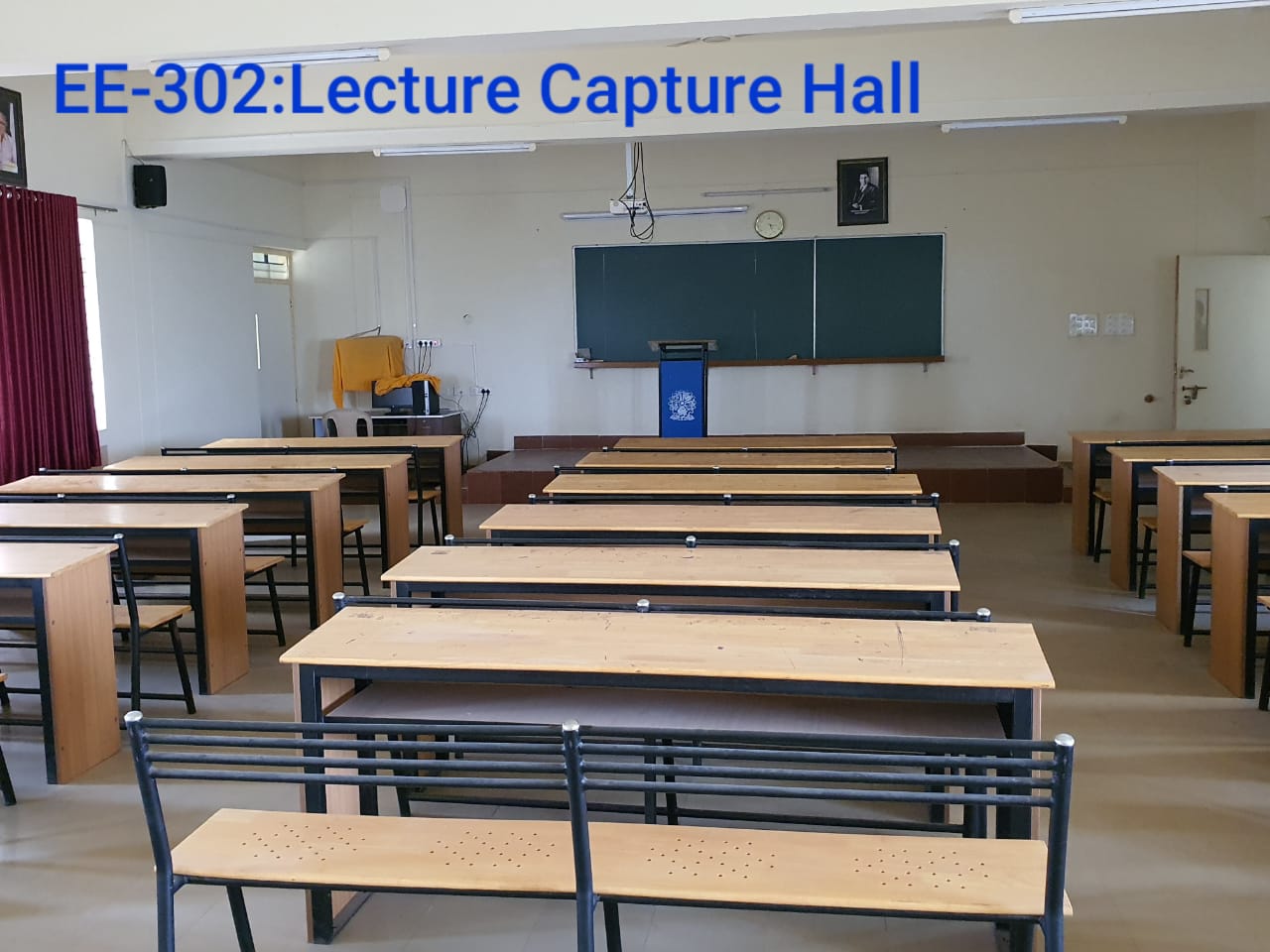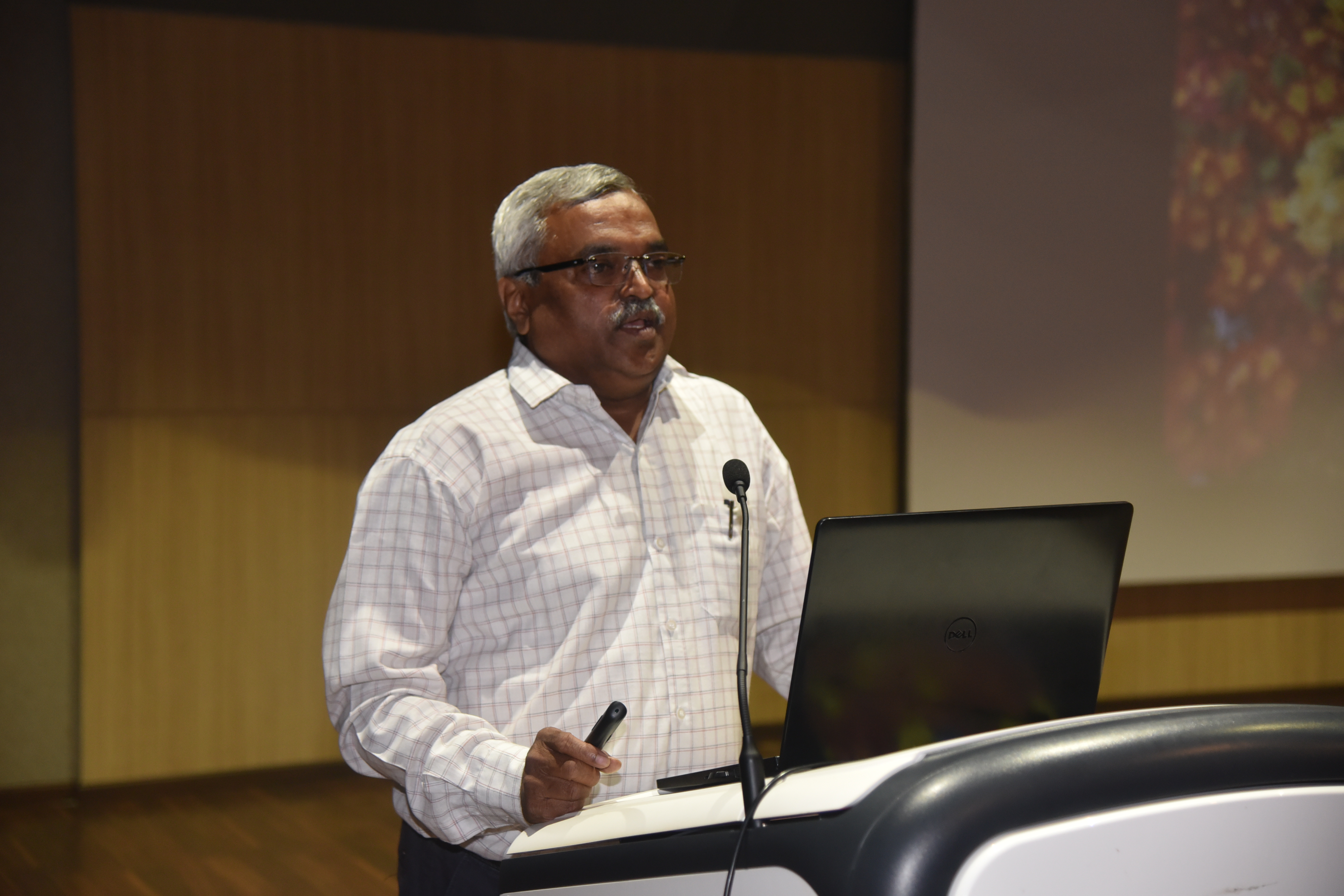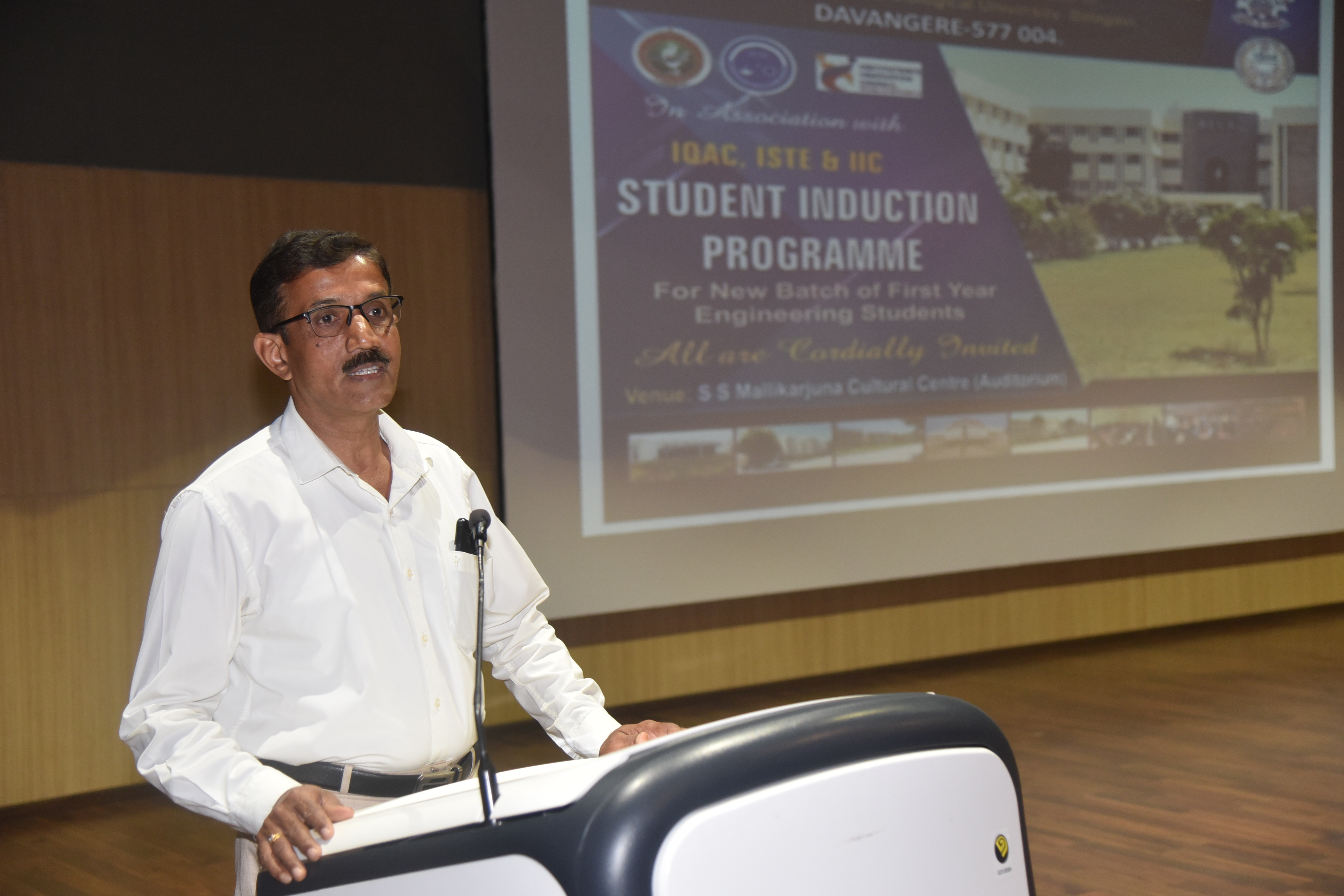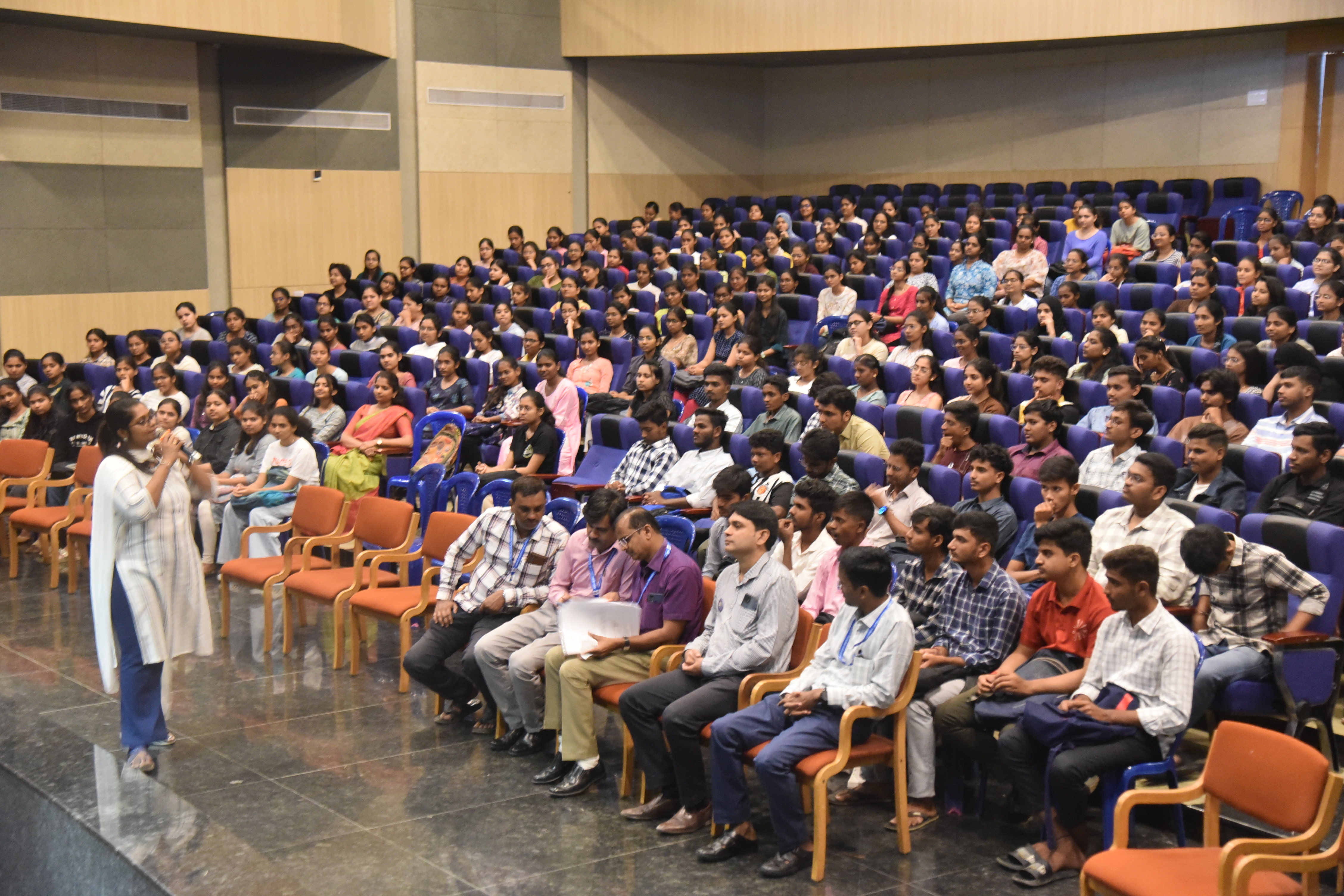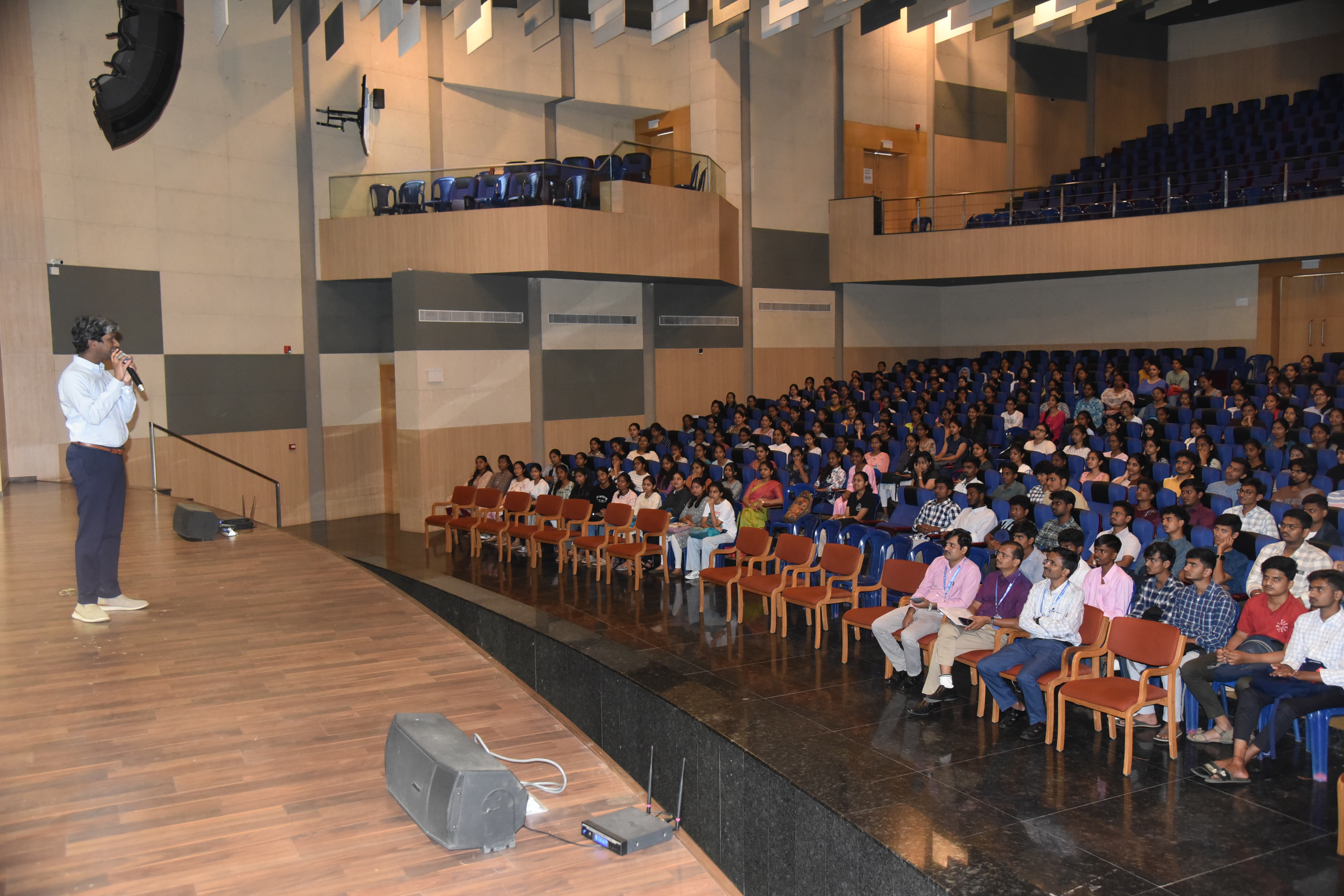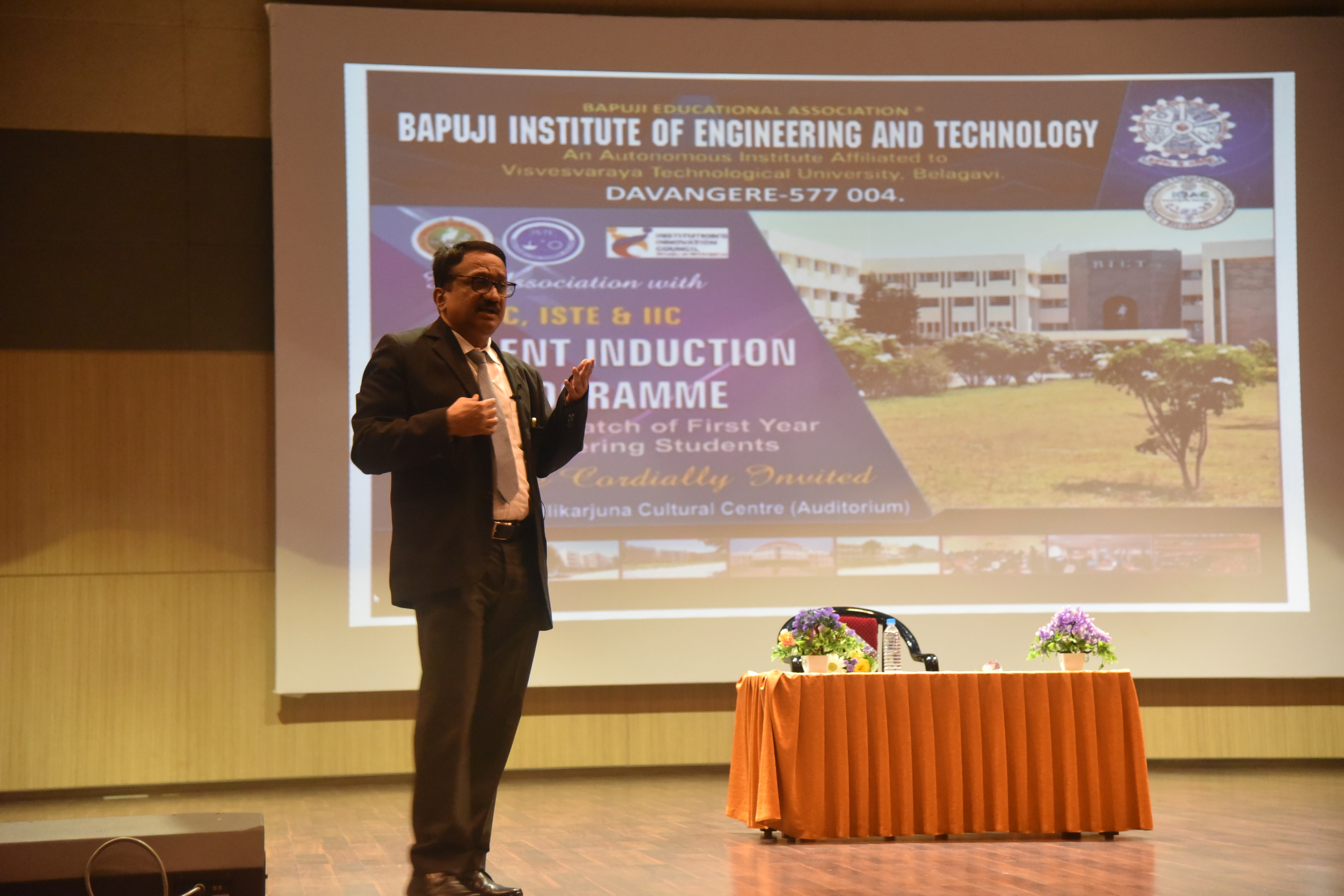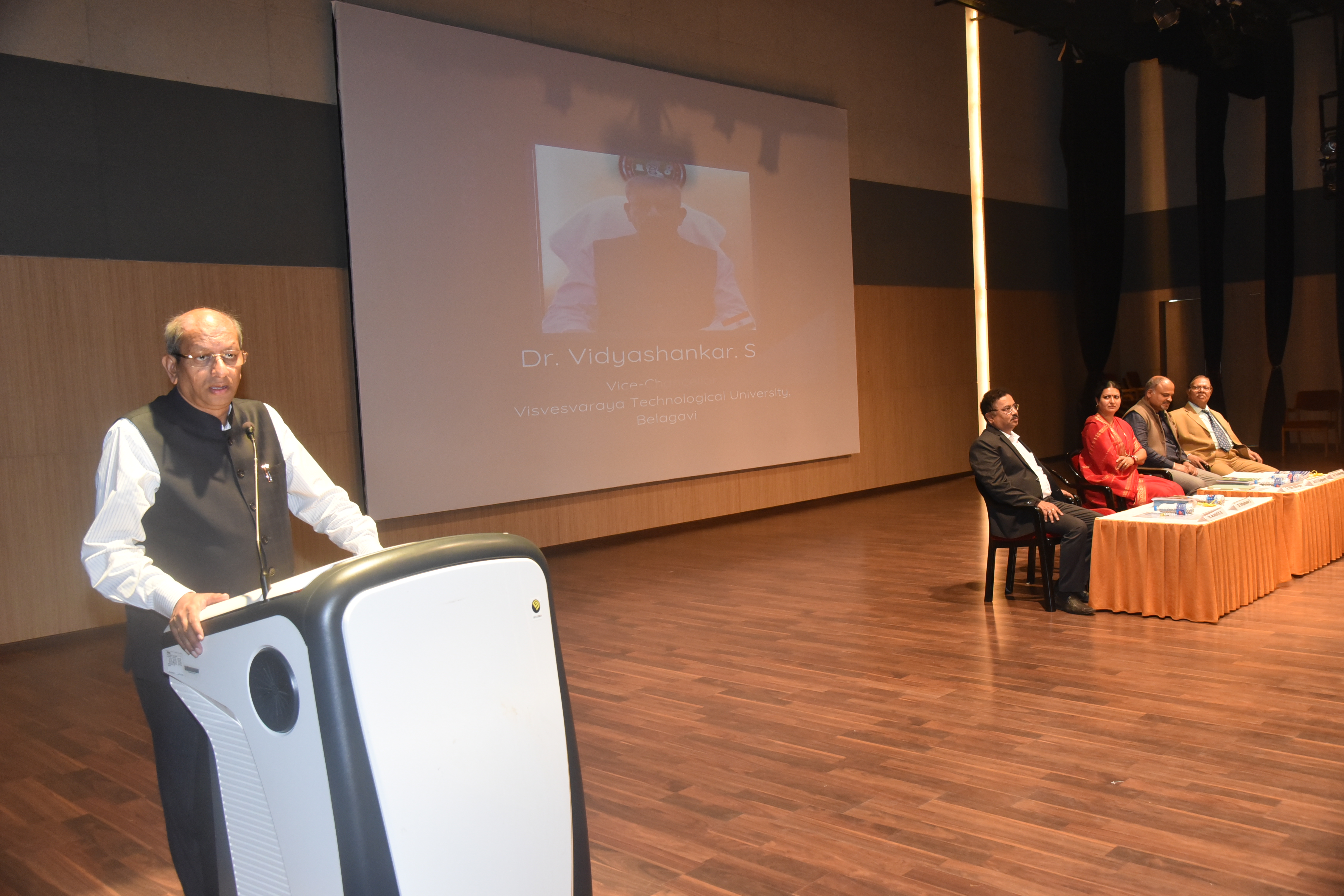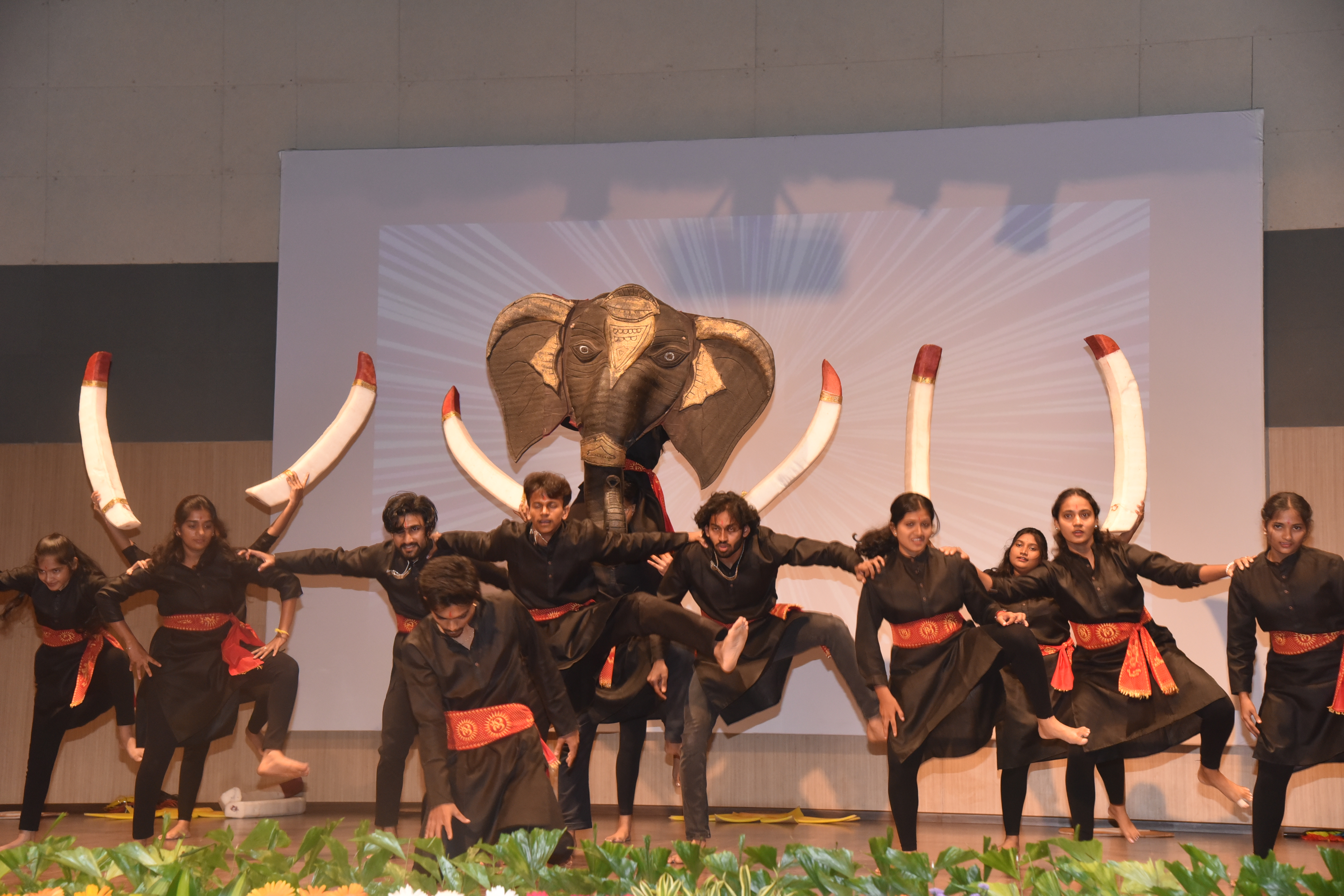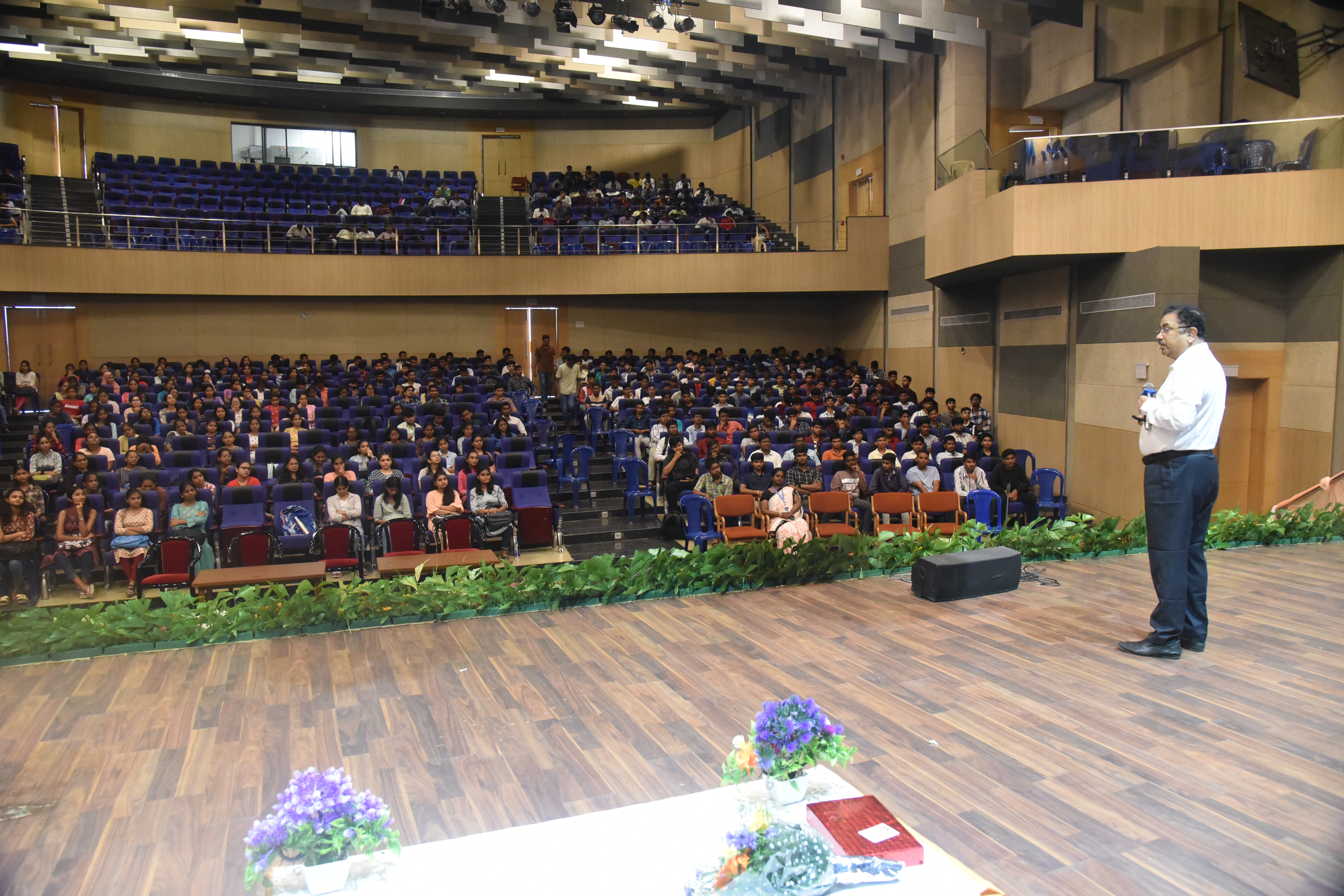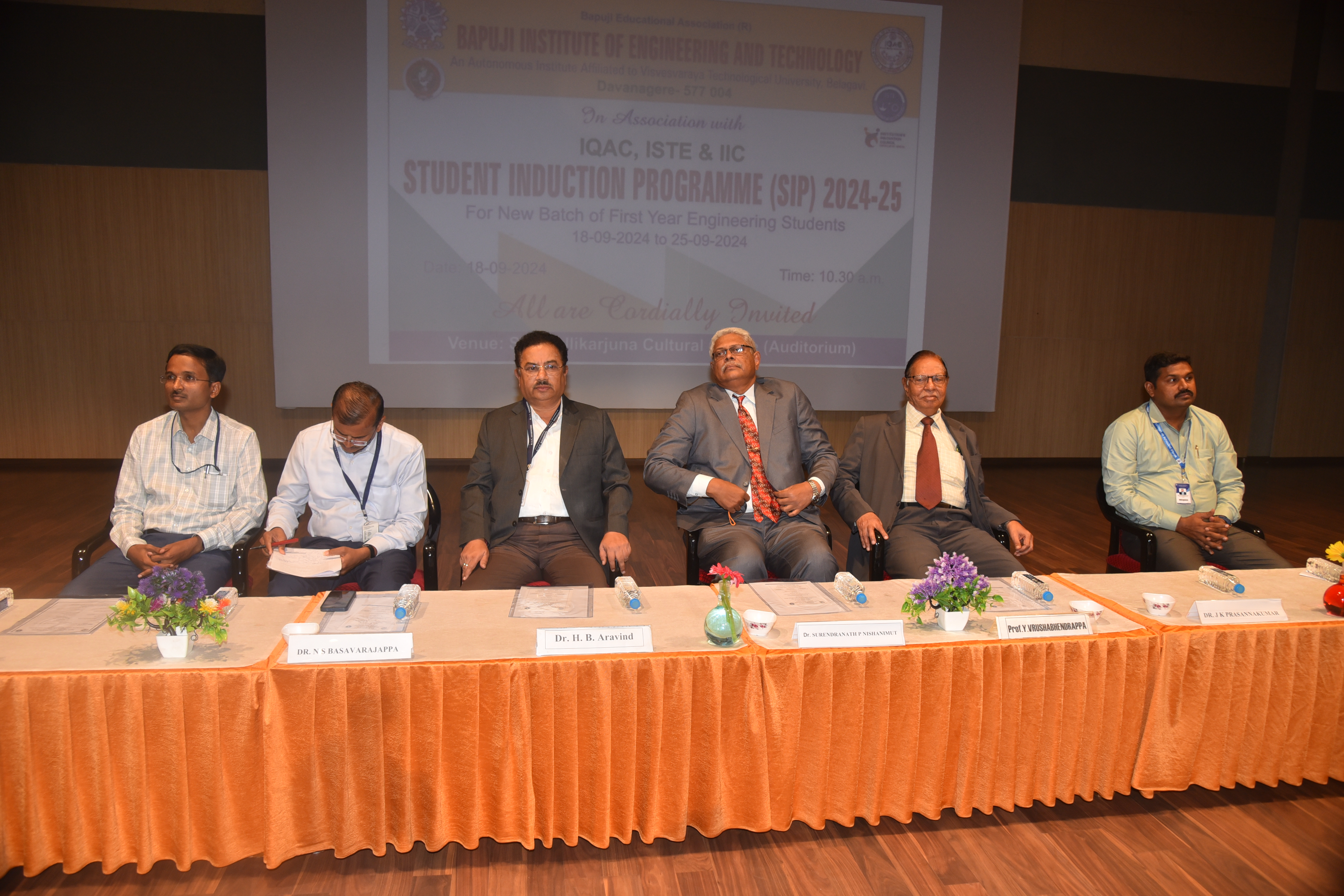Upcoming Events
Department of chemistry was established in this institute during the year 1979. The department was headed by an acclaimed Professor Dr.S.Manjappa a well-known academician and frontline researcher, Dr. B E Basavarajappa and Dr. H R Mallikarjuna.Presently the department is heading by Dr.Prasannakumar J K.
The department is well established both in terms of infrastructure, qualified and dedicated faculty. The Chemistry department is also running a Technical Chemistry Lab of Chemical Engineering steam. The department is also providing the facilities to cater the needs of UG and PG students of different streams to carry out their academic project works. The department holds 4 faculty with Ph.D.
The Department was recognized as first Research Centre under Visvesvaraya Technological University, Belagavi in the year 2002.The department offers Ph.D program in the field of Nanotechnology, Corrosion Chemistry, Medicinal Chemistry and Dye and Coordination Chemistry. Total of 14 PhD’s have been produced in association with ESTSC and 8 awarded 4 Ongoing from Chemistry Research Centre. The department faculty has published and publishing quality research papers in the journals of national and international repute.
Vision
To provide an opportunity for budding engineers and enabling fresh minds to acquire fundamental insights into chemical science required for all disciplines of Engineering and Technology.
Mission
- To teach fundamental concepts of science essential for different programmes of Engineering and Technology.
- To acquire competent mind, to inculcate the culture of research and innovation among the students.
- To encourage students to participate in co-curricular and extra-curricular activities leading to enhancement of their social and professional skills.
SWOT
a) Strength
- Qualified experienced and dedicated teaching faculty.
- Faculty contribution in effective implementation of curriculum.
- Use of ICT in teaching learning process.
- Student centric functioning with mentoring, counseling through faculty and proper academic monitoring.
b) Weakness
- Less student pursuing higher education.
- Involvement of alumni at department level is less.
- Scope for interdisciplinary and sponsored projects
c) Opportunities
- Enhancing teaching learning to other disciplines along with Engineering.
- To arrange more number of FDPs/STTPs/ National/International level conferences
- To arrange specialized Training programs by the faculty.
- Research projects can be proposed to the sponsoring agencies.
- Scope for interdisciplinary and sponsored projects
d) Threats
- Changes of curriculum in teaching - learning process.
- Encouraging students for competitive examinations and higher studies.
- Varied interest of the learning among the students.
- Decreased level of receiving the contents in interaction sessions.
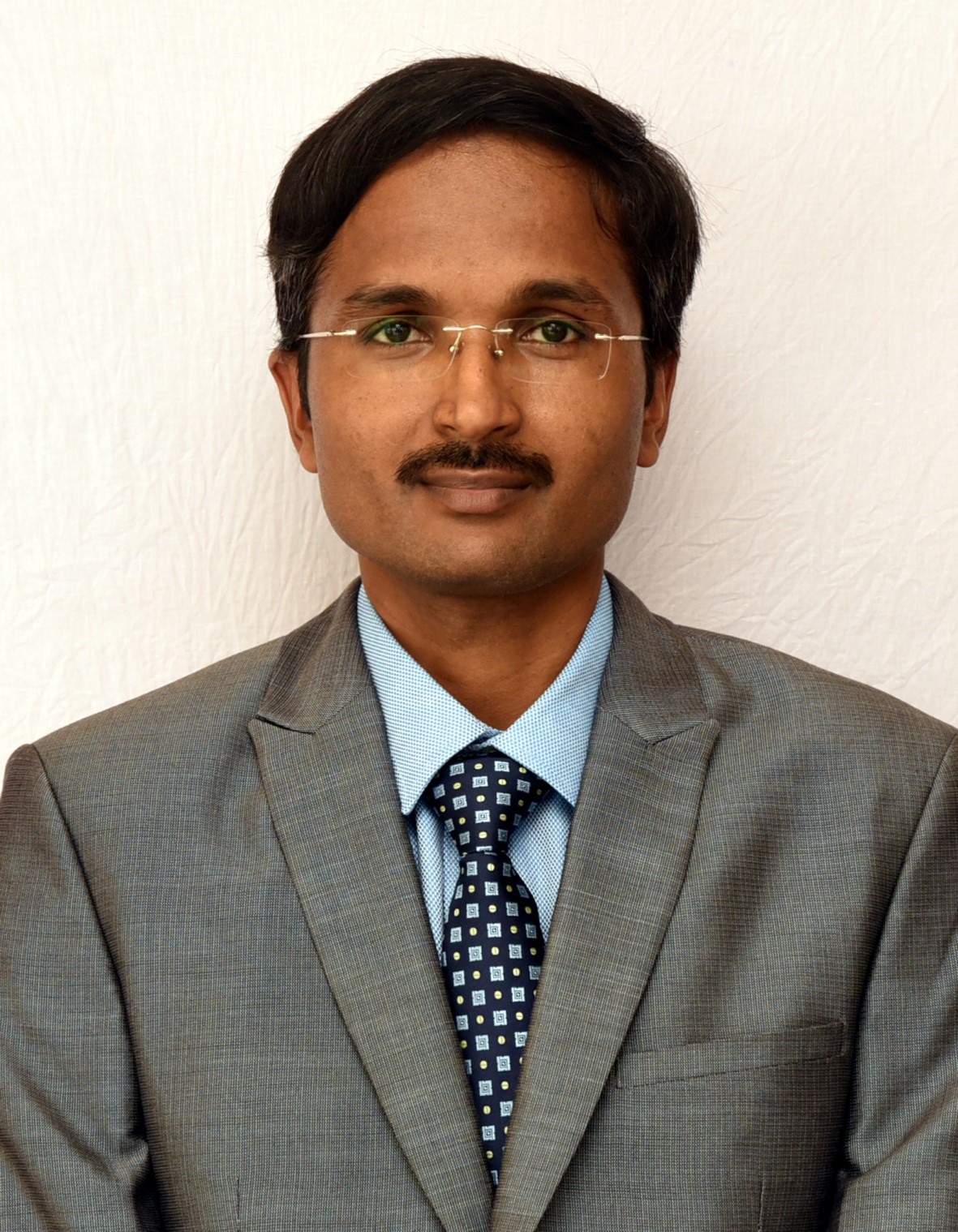
Dr. Prasannakumar J K
Associate Professor & HOD
He obtained PG in M.Sc. General Chemistry in the year 2005 with a 4th rank from Kuvempu University and Ph.D. in Chemistry from Visvesvaraya Technological University in the year 2023. He has Completed one year (2023-24) Post Doctoral Research from WUC. He joined this institute in the year 2006. He has 20 years of teaching and research experience. He has guided 17 M.Sc. Chemistry student projects of Kuvempu and Davangere University, eight KSCST and Institute-sponsored BE & M.Tech projects, and presented 25 research papers in various national and international conferences. He has published 10 research papers in journals of international repute. He also published 2 patents in the field of nanodrug delivery and contributed 3 book chapters in internationally reputed books. He is recognized as research supervisor from VTU and guiding one student for Ph.D. Currently, he is an editorial board member for 8 international journals and reviewer for 16 national and international journals that includes Springer-Nature, Elsevier, IOP and Wiley etc. His area of research covers Wood and Cellulose Chemistry, Coordination and Medicinal Chemistry and Nanomaterials. Presently, he is heading the Chemistry Department.
Faculty Members
Technical Staff
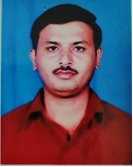
Sri K B Mahesha
Instructor
Supporting Staff
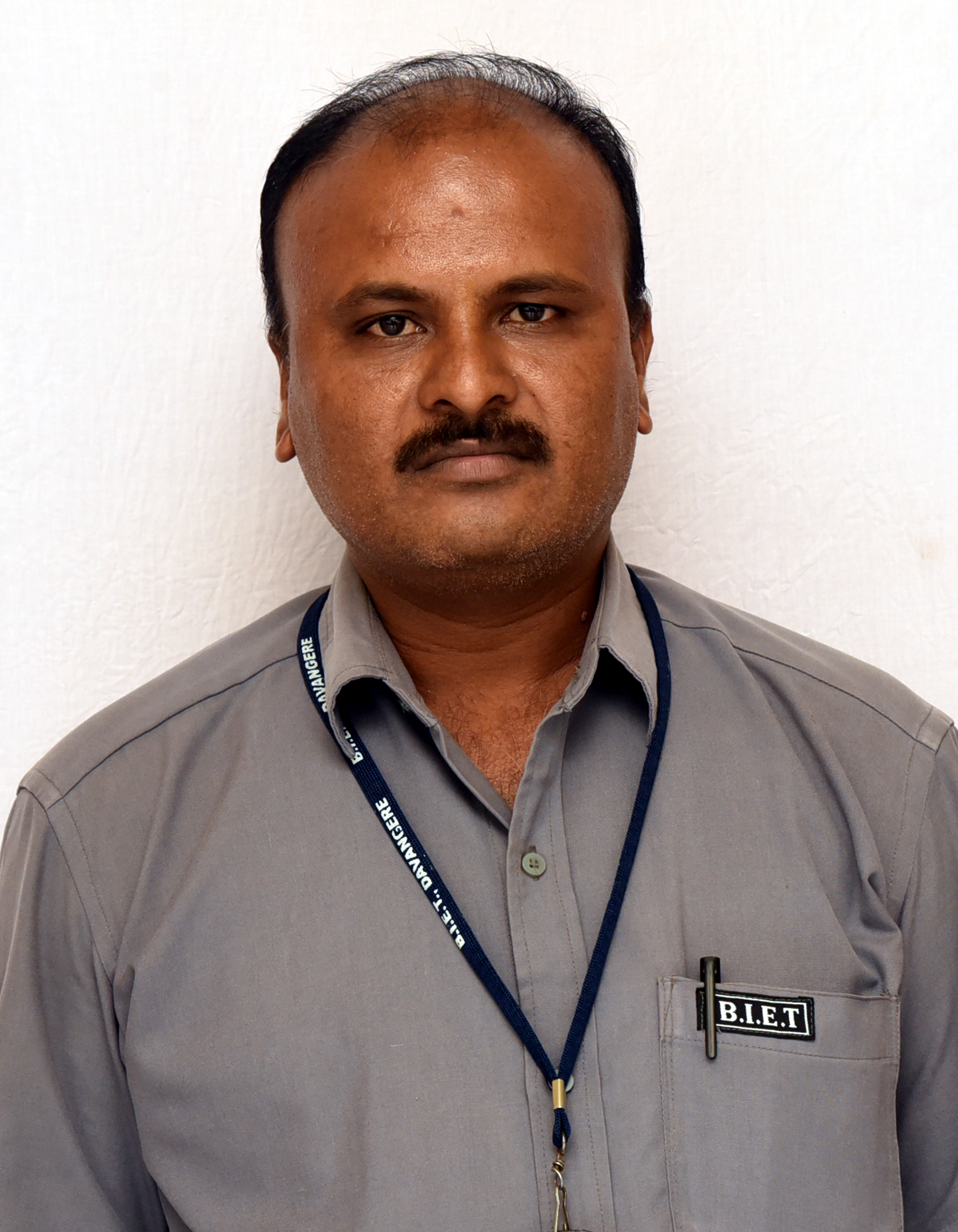
Sri.Dhanyakumar K S
Peon
Faculty Research details
ViewPh.D. Guiding & Guided details
ViewPublications
| Sl.no | Faculty Name | Google Scholar link | IRINS |
|---|---|---|---|
| 1 | Dr Mallikarjuna H R | Google Scholar | IRINS |
| 2 | Dr B M Prasanna | Google Scholar | IRINS |
| 3 | Dr Prasannakumar J K | Google Scholar | IRINS |
| 4 | Dr. Manjunath K S | Google Scholar | IRINS |
Books/Book Chapters Published
| Sl. No | Title of the Book Chapter | Author/s | Year of Publication | Name of Publisher/s |
|---|---|---|---|---|
| 1 | Colloids | Dr.S.Manjappa,J KPrasanna kumar | 2011 | KSOU, Mysore |
Grants
- Dr. S.Manjappa: Year : 2012 Agency : DST-women Scientist India Grant:Rs:19,40000.00. Project: Optimization of Biomethanation process for High TDS spent wash form Distilleries 2008-2012 Agency: VTU-VGST Grant: Rs: 39,10000.00 Project:Optimization of Cellulosic Ethanol Production From Feed Stocks. Year:2013 Agency:KSCST Grant : Rs.98000.00 Project: Study on the Environmental Emission Monitoring Status of Rice Mills at Davangere District
- Dr.B E Basavarajappa Year: 2013 Agency: KSCST Grant: Rs. 25000.00 Project:Aquifer mapping and location of sustainable sites for ground water recharging in Jagalur taluk of Davangere District Year: 2014 Agency: KSCST Grant: Rs. 25000.00 Project:Impact of recharge on aquifers system and underground water quality in parts of Jagalur taluq , Davangere district
- Dr. G K Prakash Year: 2016 Agency: KSCST Grant: Rs. 5000.00 Project:An experimental investigation on removal of dyes and COD from Textile waste water using functionalised lingo cellulosic materials
- Total Grants Received: 60,03,000.00 (Sixty Lakh Three Thousand Only)
- Dr Prasannakumar J K has guided a Student project for Biotechnology students on Extraction and Synthesis of Nanocellulose from Bioresource and its Dye removal studies. Project Sanctioned with Rs.5000.00. Received Institute Best Innovative Project Award ( 2023)
Patents
- Dr.B.M.Prasanna has got a patent published in the field of Fuel Injection System under Mechanical Engineering Stream.
Laboratory Facilities
| S.No. | Name of Lab | Qty | Configuration/Specification | Software |
|---|---|---|---|---|
| 1. | Engineering Chemistry Laboratory | 1 | 1. Digital Flame Photometer with data formulation software. 2. Digital Ion meter. 3. Digital electronic balance Adirdutt and Shemadzu make 4. Photoelectric colorimeter. 5. Digital pH meter 6. Conductivity meter 7. Hot air oven 8. Digital Temperature controlled Water bath | 1. Chem Draw 2. Chem Sketch |
| 1. | Technical Chemistry Laboratory | 2 | 1. Hot air oven. 2. Muffle furnace 3. Fuming chamber 4. Refluxing unit 5. Digital Water bath 6. SFC Instrument 7. Vacumpump | 1. Chem Sketch 2. Chem Draw |
| 3. | Chemistry Research Laboratory | 3 | 1. Electronic balance 2. Magnetic stirrer 3. Hot Plate 4. Centrifuger 5. Digital Water bath 6. BOD incubator 7. Sox let extraction unit 8. Hot air oven 9. COD Digester 10. RO Unit 11. Digial Oil Bath 12. Thermostat | 1. Chem Draw 2. Chem Sketch 3. Origin -8.5 SR-1 |
Major Equipments
- Engineering Chemistry Laboratory 1. Digital Flame Photometer with data formulation software. 2. Digital Ion meter. 3. Digital electronic balance Adirdutt and Shemadzu make 4. Photoelectric colorimeter. 5. Digital pH meter 6. Conductivity meter 7. Hot air oven Technical Chemistry Laboratory 1. Hot air oven. 2. Muffle furnace 3. Fuming chamber 4. Refluxing unit 5. Digital Water bath 6. SFC Instrument 7. Vacumpump Chemistry Research Centre 1. Electronic balance 2. Magnetic stirrer 3. Hot Plate 4. Centrifuger 5. Digital Water bath 6. BOD incubator 7. Sox let extraction unit 8. Hot air oven 9. COD Digester 10. RO Unit 11. Ion Exchange Unit
Classroom
First Year Class Rooms: EE-306 : LCD Projector with Black Board, Non Foldable Desks. EE-305 : LCD Projector with Black Board, Non Foldable Desks. EE-302 : LCD Projector with Black Board, Non Foldable Desks. EE-205 : LCD Projector with Black Board, Non Foldable Desks. M-006 : Black Board, Non Foldable Desks M-007 : LCD Projector with Black Board, Non Foldable Desks. Cv-301: LCD Projector with Black Board, Non Foldable Desks. M-207: LCD Projector with Black Board, Non Foldable Desks.
Department Library
Department of Chemistry Department Library Details: Faculty In charge :Ashwini R Kamareddi Assistant : K Basavaraju Number of Text Books : 18 No. of Reference Books : 30 Number of Ph.D Thesis : 08
Department Advisory Board (DAB) Members
| S.No. | Member | Designation |
|---|---|---|
| 1 | Dr. Prasanakumar J K | Assistant Professor & HOD , Dept of Chemistry , BIET |
| 2 | Dr H R Mallikarjuna | Asso Professor |
| 3 | Dr. B M Prasanna | Asso. Professor |
| 4 | Smt. M G Thriveni | Assistant Professor, Dept of Chemistry , BIET |
| 5 | Dr. Manjunath K S | Assistant Professor, Dept of Chemistry , BIET |
| 6 | Ms. Bhumika P S | Assistant Professor, Dept of Chemistry , BIET |
| 7 | Dr. K S Basavarajappa | Prof. and HOD, Dept. of Mathematics, BIET |
| 8 | Dr. Jagadeesh M R | Asso. Professor & HOD, Dept. of Physics, BIET |
| 9 | Dr. B Vijay | Professor, Dept. of Chemistry, UBDTCE, Davanagere |
| 10 | Dr. Manavendra G | Prof & Head, Dept. of Mechanical Engineering, BIET |
| 11 | Dr. C R Nirmala | Prof & Head, Dept. of CSE, BIET |
| 12 | Dr. Sunitha G S | Prof & Head , Dept. of ECE, BIET |
| 13 | Dr S Suresh | Professor & Head, Department of Civil Engineering, BIET |
| 14 | Dr.S B Mallikarjuna | Professor & Head, Department of AIML, BIET |
| 15 | Dr. C M Kalleshappa | Professor & Head, Department of Chemical Engineering, BIET |
| 16 | Dr.N Pradeep | Professor & Head, Department of CS-Data Science, BIET |
| 17 | Dr G P Desai | Prof & Head, Department of BT, BIET |
| 18 | Dr. H P Vinutha | Professor Department of CSE, BIET |
| 19 | Dr Y N Dinesh | Professor & Head, Department of TX, BIET |
| 20 | Mr. Darshan P N | First Year BE EC Student |
| 21 | Kum Chinmayee H K | First Year BE EC Student |
Staff Achievements
- J K Prasannakumar has won Best Research Paper award under IC-Group at NCRSE conference held at Kuvempu University.
- J K Prasannakumar has won Best Research Paper award under IC-Group at NCRSE conference held at Kuvempu University.
Student Achievements
- Mr.Sathwik and Group,First year J Section (2018 Batch) have won State Best Project Award from KSCST, Karnataka in the year-2018 held at BVBCET, Hubli.
- First year F Section Student Abinandan & Team have participated and won a citation on Student Project at National level technical exhibition held at IIT, Mumbai in the year 2019.
- Mr.Sathwik and Group,First year J Section (2018 Batch) have won State Best Project Award from KSCST, Karnataka in the year-2018 held at BVBCET, Hubli.
- First year F Section Student Abinandan & Team have participated and won a citation on Student Project at National level technical exhibition held at IIT, Mumbai in the year 2019.
Department Activities
Science Forum Activities: The Department in association with Physics and Mathematics department organizes the following programs. 1. Quiz competition 2. Power point presentation on selected topic 3. Invited lectures on personality development 4. National Science Day Every Year 5. National conference and seminars 6. Debate completion 7. Drawing, Essay and Collage Competition.
The following department activities were conducted:
- As per AICTE, the department in association with Physics and Mathematics departments is involved in organizing Student Induction Program for first year Engineering Students in order to inculcate the professional and ethical values in them.
- The Department in association with Physics and Mathematics department organizes the following programs. 1. Quiz competition 2. Power point presentation on selected topic 3. Invited lectures on personality development 4. National Science Day Every Year 5. National conference and seminars 6. Debate completion 7. Drawing, Essay and Collage Competition.
- The Department in association with Physics and Mathematics department organizes the following programs. 1. Technology Barrier Reduction Program (TBRP) under Foundation for Advancement of Education & Research (FAER) funded by ZEBRA Technologies, Bengaluru for ninth passed rural Kannada medium students of Davangere district govt. High Schools.
- The Department in association with Physics and Mathematics department organizes a mandatory course AICTE Activity Point Program for first year Engineering students. •It helps to inculcate the social awareness among the student fraternity regarding the issues like Swatch Bharath, Green Environment initiatives to save the earth and creatures. •The students were exposed to the difficulties actually being face by the rural school going children’s. •The students came to know the eye leasing socio economic problems of rural people through the survey. •It helps in educating the school children’s about first aid and CPR like life saving process.
- Department organizes FDP's, STTP's ,Conferences ,Seminars, Webinars Periodically
- Invited Speaker: Prof. Anilkumar Associate Professor, Department of Chemistry, Delhi Technological University, New Delhi Presently : Postdoctoral Research Fellow in Israel Patrons: Dr. H B Aravind Principal, BIET Prof. Y. Vrushabhendrappa Director, BIET HOD Dr. B E Basavarajappa, Prof. & Head Department of Chemistry, BIET Organizing Secretary Prasannakumar J K Asst. Professor Department of Chemistry, BIET Convener: Dr. H R Mallikarjuna Asst. Professor Department of Chemistry, BIET Members: Smt.M G Thriveni Asst. Professor Department of Chemistry, BIET Ashwini R K Asst. Professor Department of Chemistry, BIET
- Invited Speaker: Dr.J.Manjanna Professor & Chairman Department of Chemistry, Rani Channamma University, Belagavi, Karnataka Patrons: Dr. H B Aravind Principal, BIET Prof. Y. Vrushabhendrappa Director, BIET HOD Dr. B E Basavarajappa Prof. & Head Department of Chemistry, BIET Conveners: Prasannakumar J K Asst. Professor Department of Chemistry, BIET Dr. H R Mallikarjuna Asst. Professor Department of Chemistry, BIET Coordinators: Smt.M G Thriveni Asst. Professor Department of Chemistry, BIET Ashwini R K Asst. Professor Department of Chemistry, BIET Dr.Sunitha R M Asst. Professor Department of Chemistry, BIET
B.E. Time Table
Calender of Events
Learning Materials
-
1. Learning Through Power Point Presentation: Slide presentation software such as PowerPoint has become an ingrained part of many instructional settings, particularly in large classes and in courses more geared towards information exchange than skill development. PowerPoint can be a highly effective tool to aid learning, but if not used carefully, may instead disengage students and actually hinder learning. Advantages Potential benefits of using presentation graphics include: • Increasing visual impact • Improving audience focus • Providing annotations and highlights • Analyzing and synthesizing complexities • Enriching curriculum with interdisciplinary approach • Increasing spontaneity and interactivity • Increasing wonder
More -
2. Learning Through NPTEL Lectures: The National Programme on Technology Enhanced Learning (NPTEL) was initiated by seven Indian Institutes of Technology (Bombay, Delhi, Kanpur, Kharagpur, Madras, Guwahati and Roorkee) along with the Indian Institute of Science, Bangalore in 2003. Five core disciplines were identified, namely, civil engineering, computer science and engineering, electrical engineering, electronics and communication engineering and mechanical engineering and 235 courses in web/video format were developed in this phase. The main goal of NPTEL Phase II (2009-14) was to build on the engineering and core science courses launched previously in NPTEL Phase I. An additional 600 web and video courses were created in all major branches of engineering, physical sciences at the undergraduate and postgraduate levels and management courses at the postgraduate level. Several improvements such as indexing of all video and web courses and keyword search were implemented.
More -
3. Learning Through Virtual mode: Virtual learning is a learning experience that is enhanced through utilizing computers and/or the internet both outside and inside the facilities of the educational organization. The instruction most commonly takes place in an online environment. The teaching activities are carried out online whereby the teacher and learners are physically separated (in terms of place, time, or both). We can define virtual learning as: Distance learning conducted in a virtual learning environment with electronic study content designed for self-paced (asynchronous) or live web-conferencing (synchronous) online teaching and tutoring.
More -
4. Learning Through YouTube Videos: It found that the use of YouTube can play a vital role in helping pupils understand their English lessons, improve their performance, and advance their understanding of English. Additionally, the multimodal text in YouTube can play a leading role in helping learners understand their English lessons.
More
